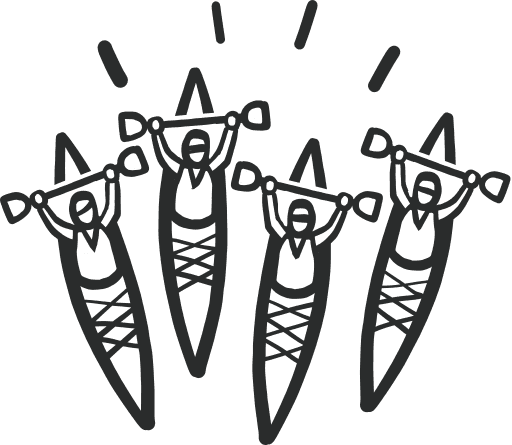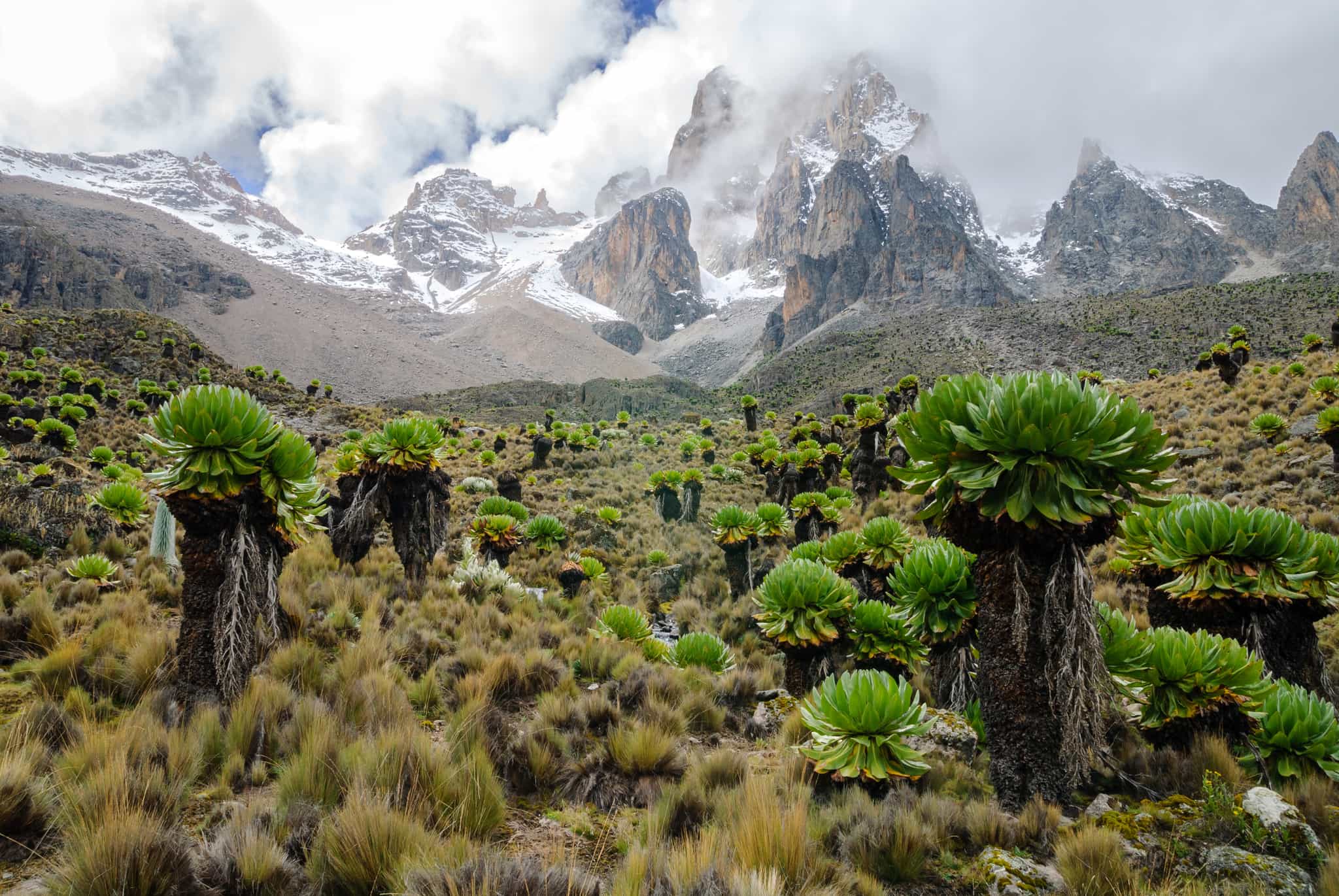
Climb Mount Kenya (4985m) and Go on Safari
Summit the trekking peak of Africa's second-highest mountain and explore a wildlife-packed corner of Kenya on this epic adventure combo
What's Included?
Activities & Certified Guides
All itinerary activities with local, certified guides and a support teamAll accommodation
4 nights camping, 3 nights in riverside lodges, 1 night in a wilderness safari campMeals
All your meals are included throughoutTransfers
Airport and local transfers, including a porter to carry your overnight luggage on the trekEquipment & Permits
All your camping gear, permits, taxes and licencesSmall Like-minded Groups
Solo-friendly by design, join our small n’ sociable groups of up to 14 like-minded, active and outdoorsy people…
…
What's it like?



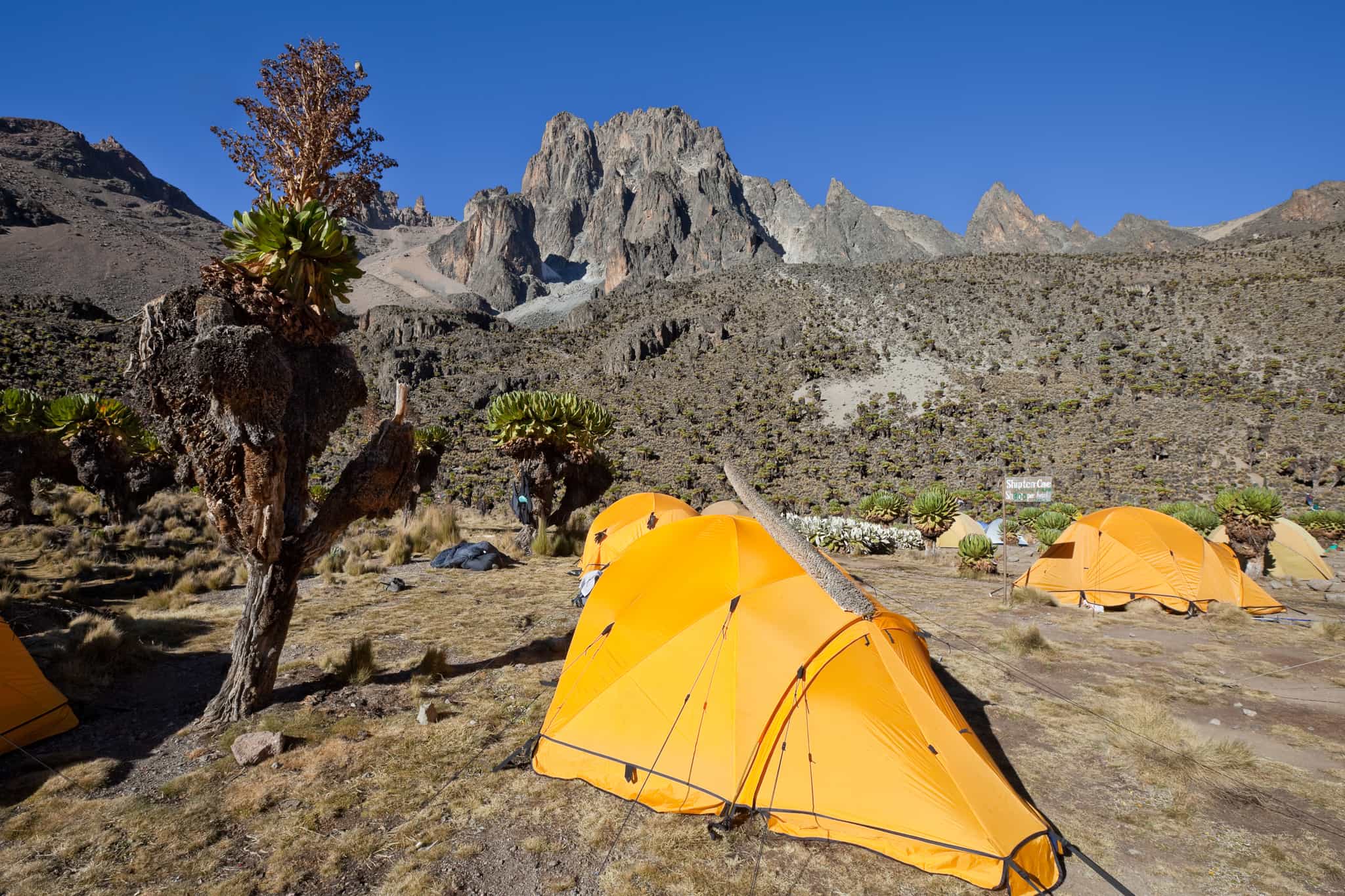
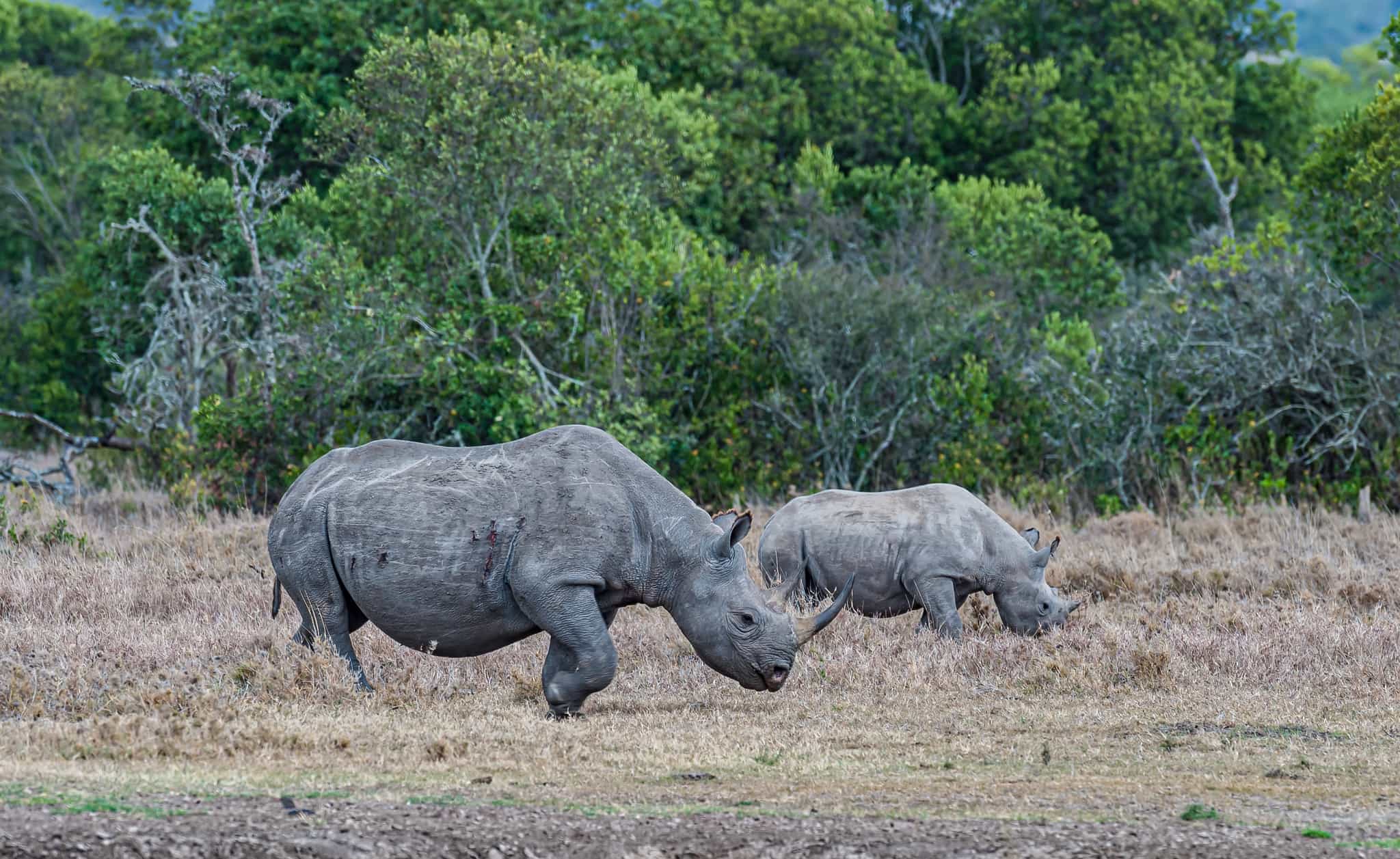
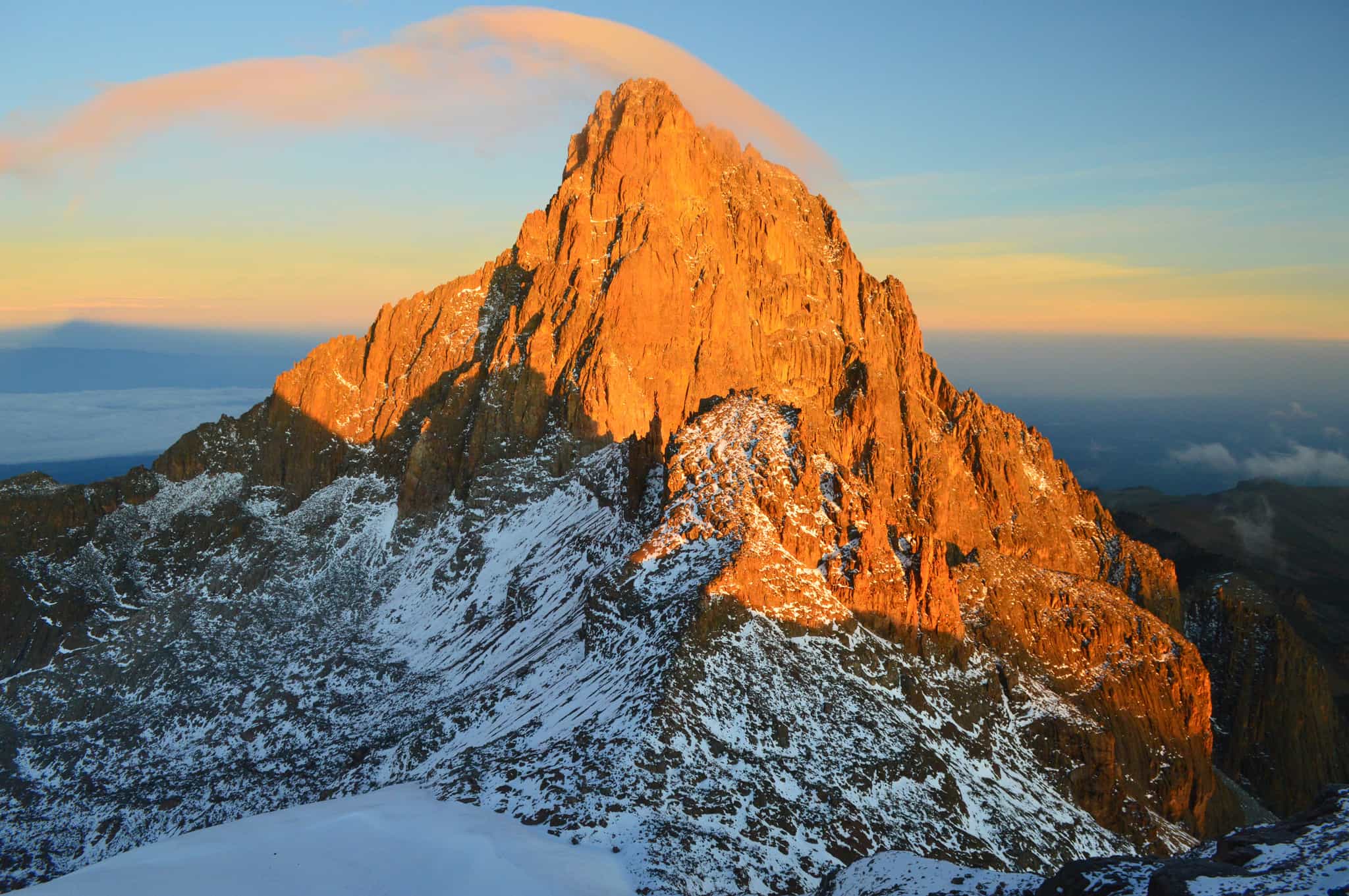
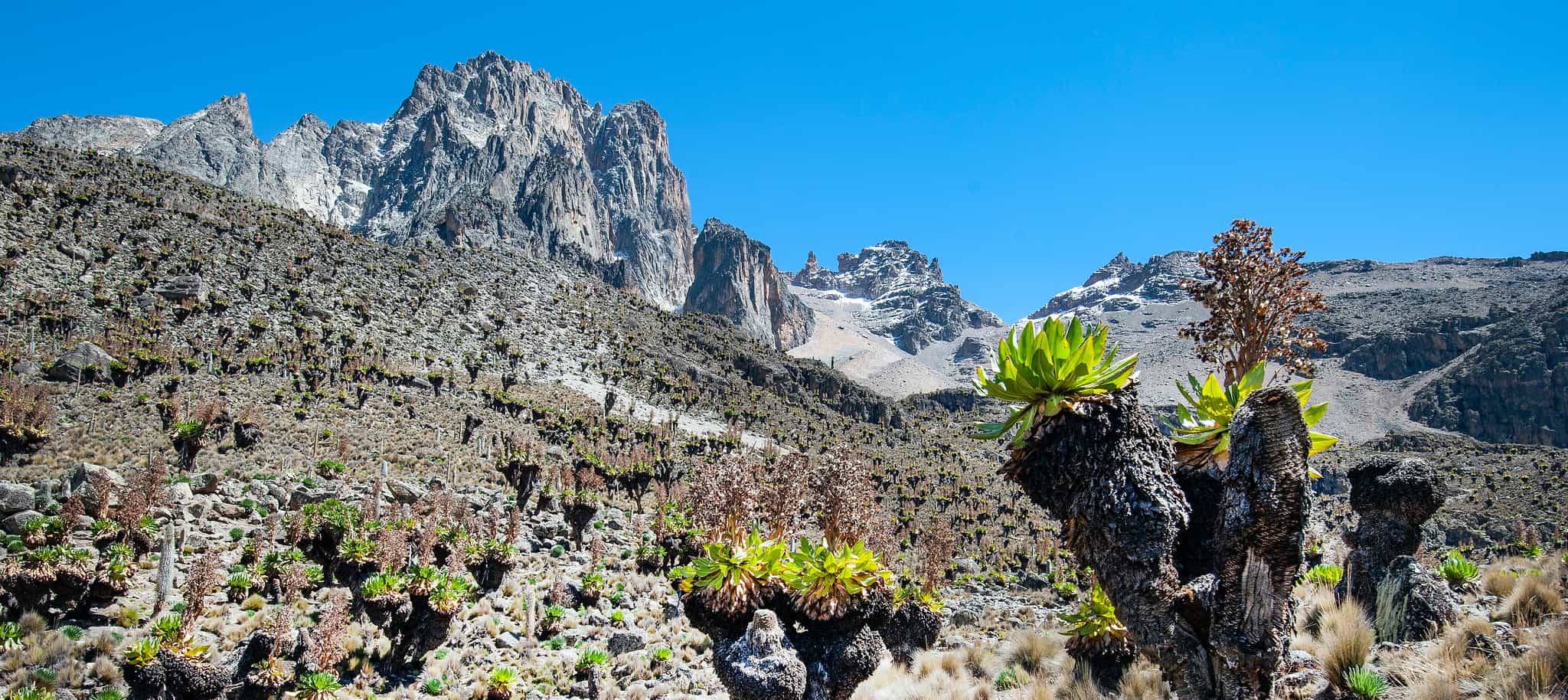
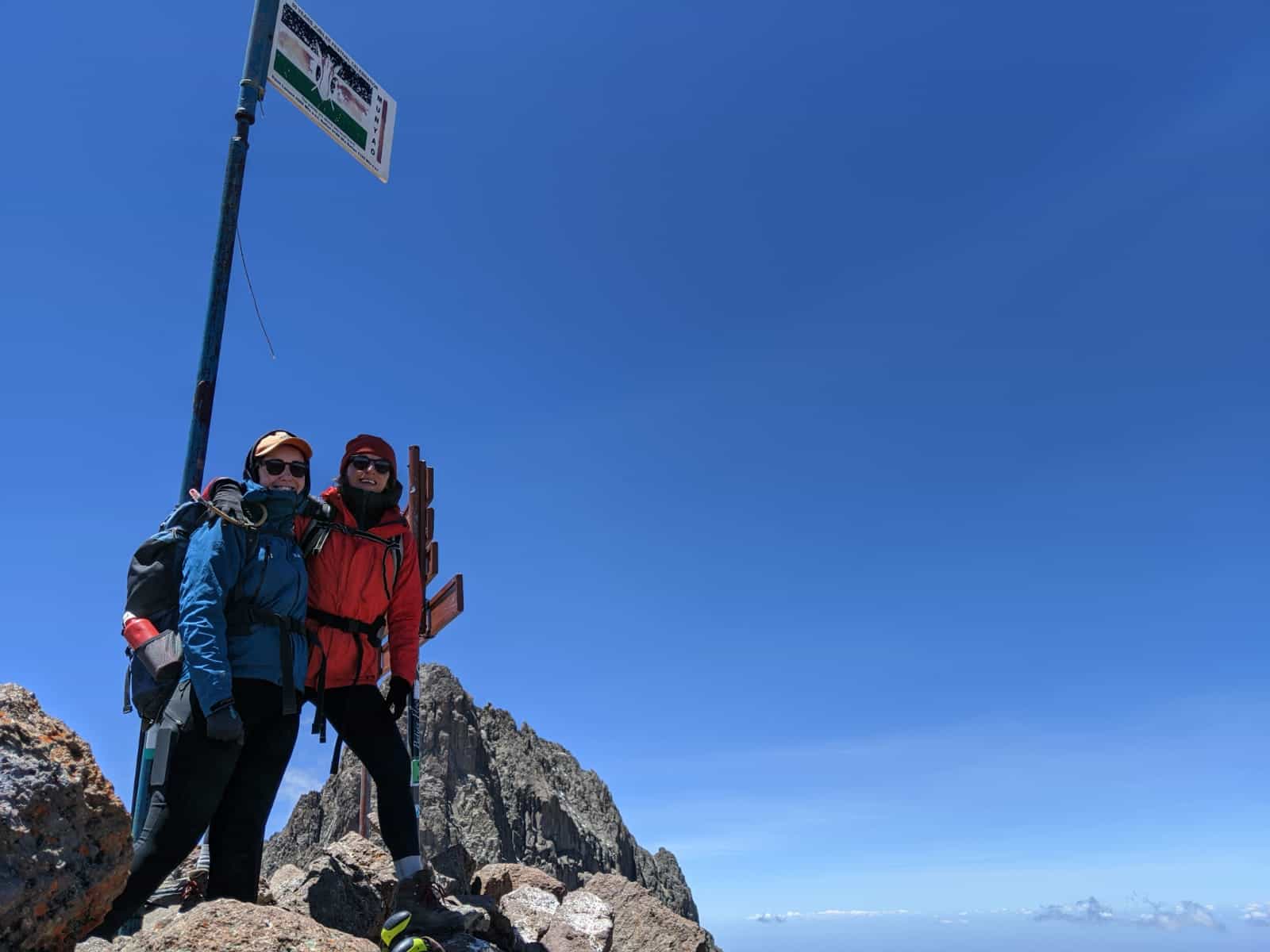
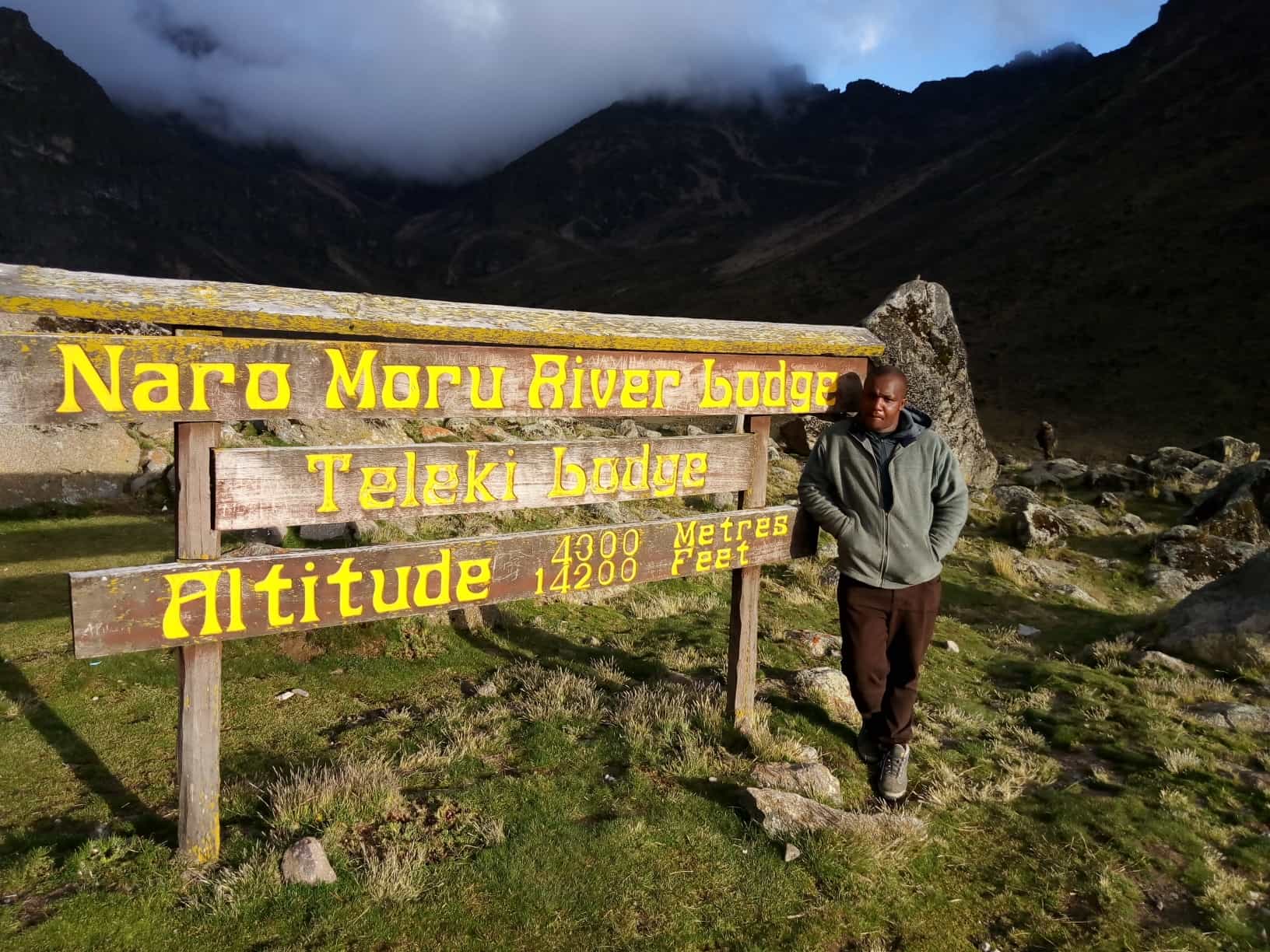
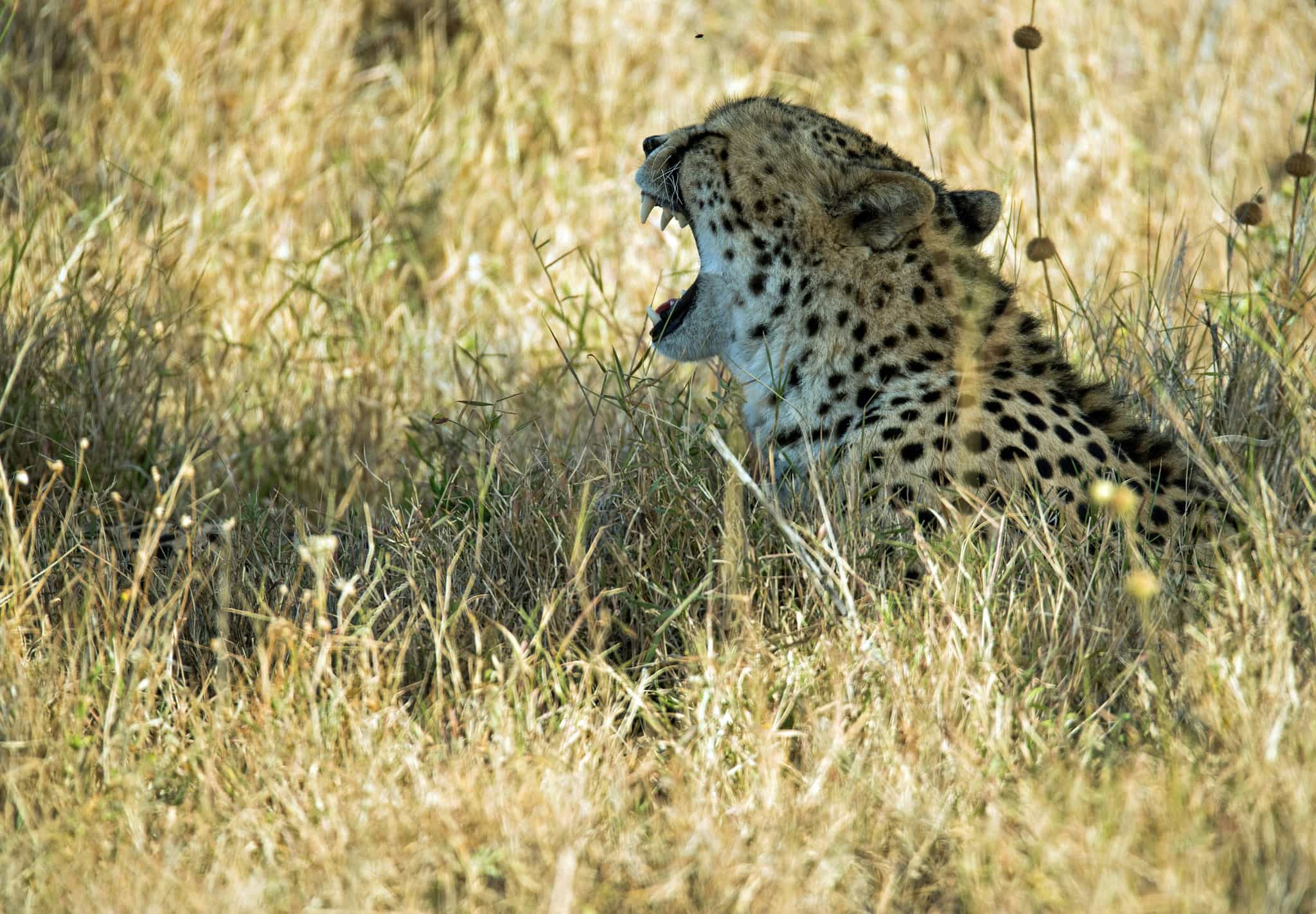
Tackle an epic hike through alpine forests, meadows, glaciers, lakes and lunar landscapes to summit Point Lenana (4985m): Mount Kenya's trekking peak
Look out over Africa from the continent's second highest point, with vastly fewer climbers than its famous next door neighbour, Kilimanjaro
Head deep into the Ol Pejeta Conservancy to spot elephants, lions, zebras, giraffes and endangered black rhinos
Key Information
Day 1
Welcome to Kenya
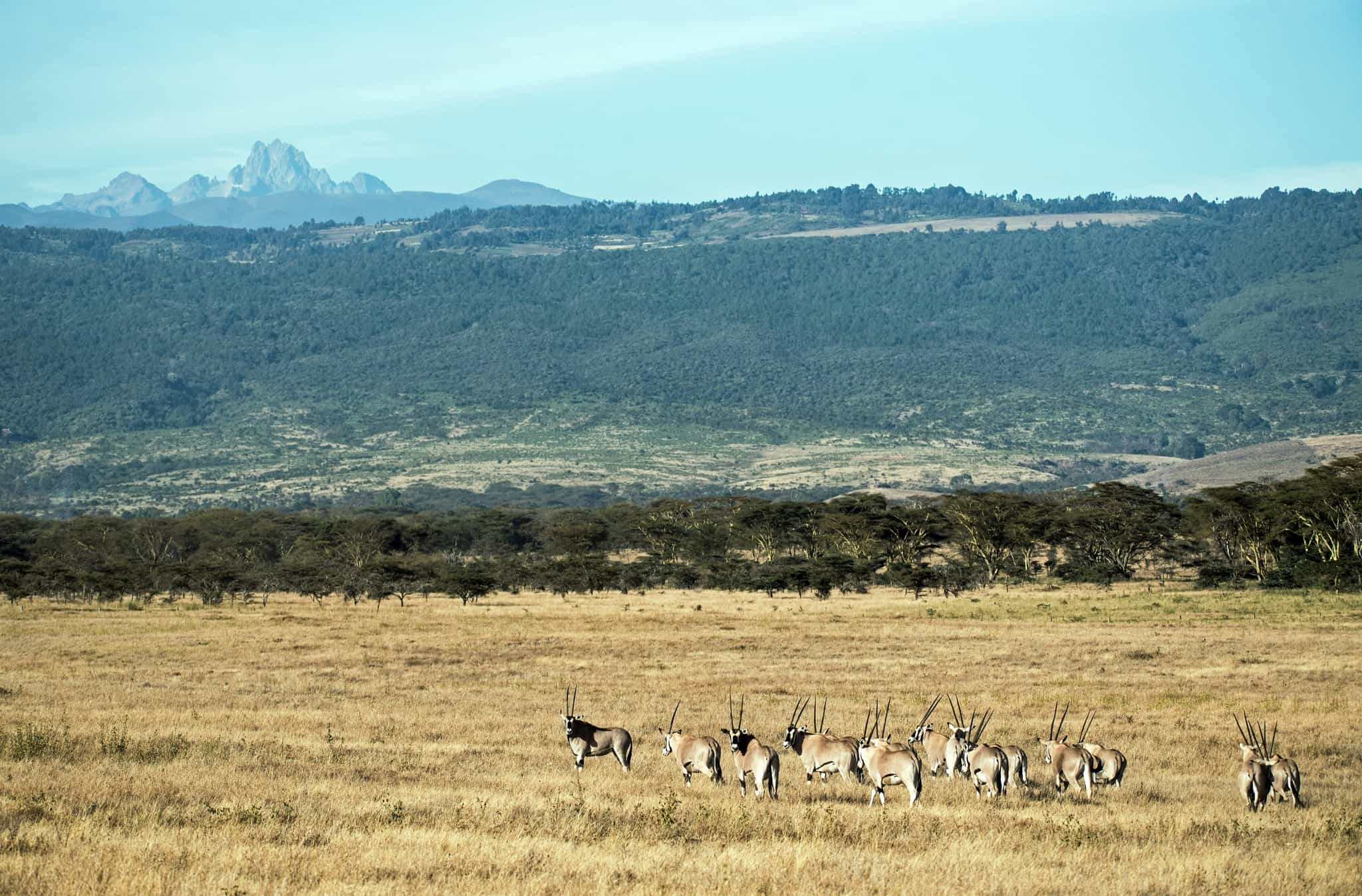
Descend over the plains of East Africa and touch down at Nairobi Airport where your host will be waiting to transfer you to their base on the banks of the Sagana River. Tuck in to a welcome dinner this evening with your host and fellow adventurers for a chat through the adventure to come.
Day 2
To Mount Kenya
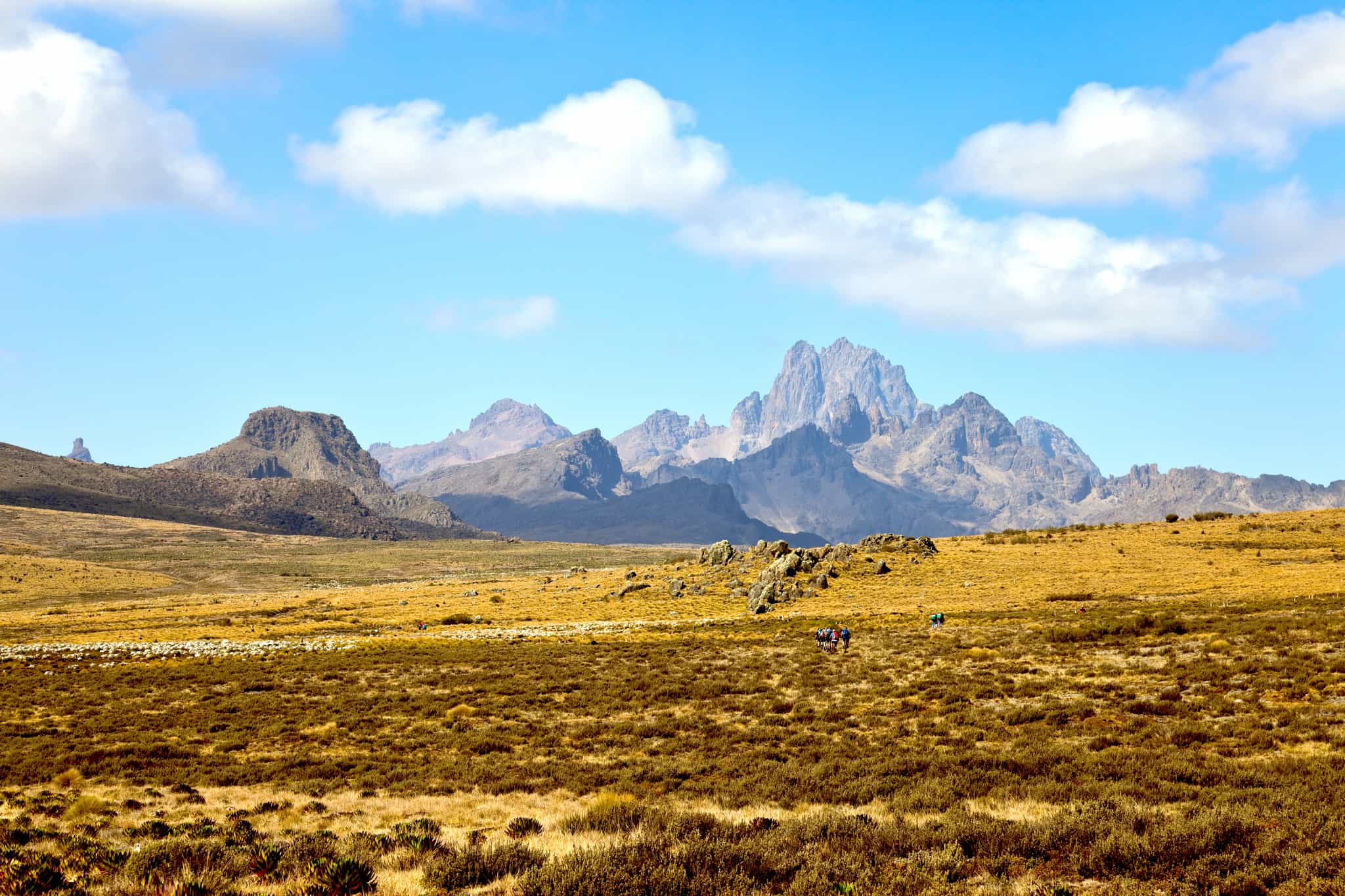
Driving
Hiking
Grab an early breakfast before leaving Nairobi for a 4-hour drive through the plains, with the Mount Kenya massif gradually coming into view. You'll be trekking the Chogoria Route to the 4985m-high Point Lenana, the 'trekker's peak' of Mount Kenya and its third highest (Batian, at 5199m and Nelion, at 5188m can only be reached with specialist mountaineering equipment). Reach the Mount Kenya forest at 2200m, from where you'll set off for an acclimatisation hike to reach the first camp at Chogoria Gate (2950m). Take in your first taste of this incredible wilderness area while dinner is cooked for you and camp is set up. Relax around a campfire before retiring to the sounds of the Mount Kenya rainforest.
Day 3
Chogoria Gate to Lake Ellis (3200m)
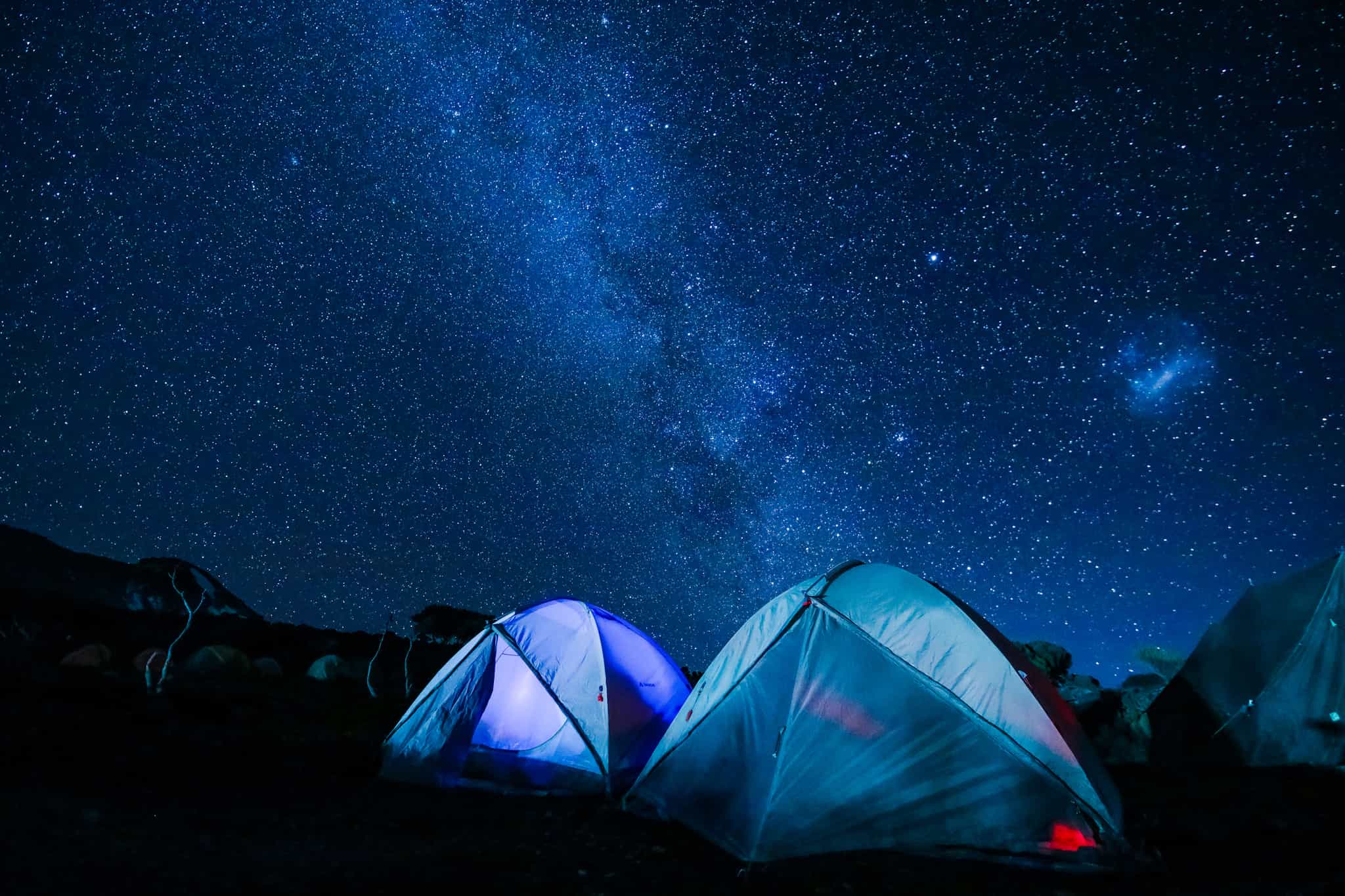
Hiking
Unzip the tent, grab an early breakfast while watching the mountain wake up, then set off for the first full day of trekking. You'll hike through moorland and tussock grass in this more lush part of the ecosystem with many flowers in bloom creating a colourful backdrop. You'll then pass Urumandi Falls to reach a higher moorland with low tree cover for amazing views back over the plains. Lake Ellis, at an altitude of 3390m, is your next camp spot – a tranquil location with full panoramas of the main peaks of Mount Kenya, and set a good way off the main trail for an amazing camp out beneath the stars.
Day 4
Lake Ellis to Lake Michaelson (3962m)
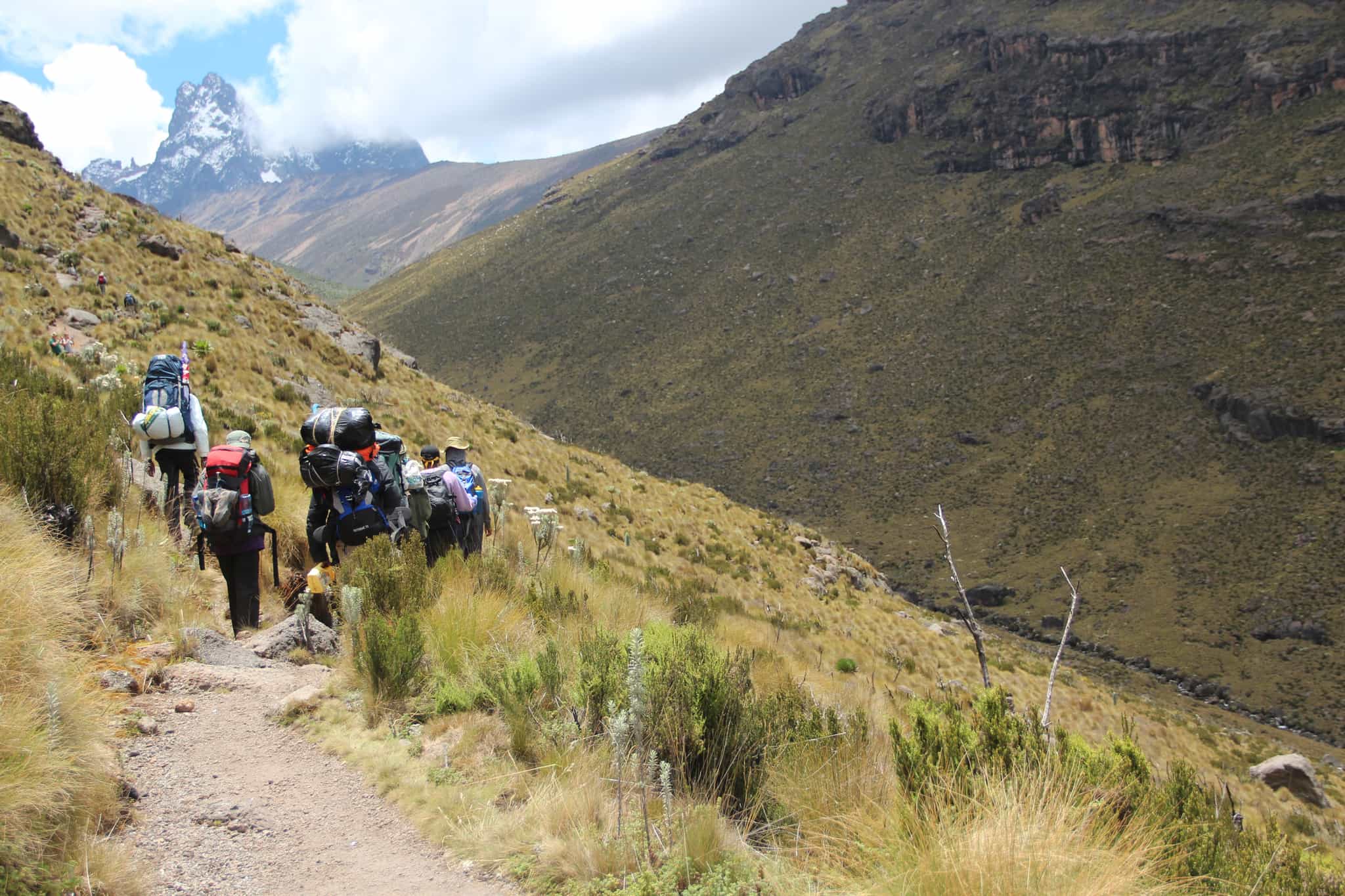
Hiking
Today's route is well off the beaten track. Set off skirting Lake Ellis, cross over the valley and follow a ridge deeper into the mountain. Enjoy breathtaking views over the Gorges Valley and back towards Itinguni and the northern moorlands. At the head of the Gorges Valley is Lake Michaelson, a crystal-clear glacial lake with still blue water. Lake Michaelson is surrounded by 'The Temple', a huge amphitheatre of 200m-high rocky cliff faces, and it is in this spectacular location that you will camp for the night.
Day 5
Lake Michaelson to Mintos Camp (4200m)
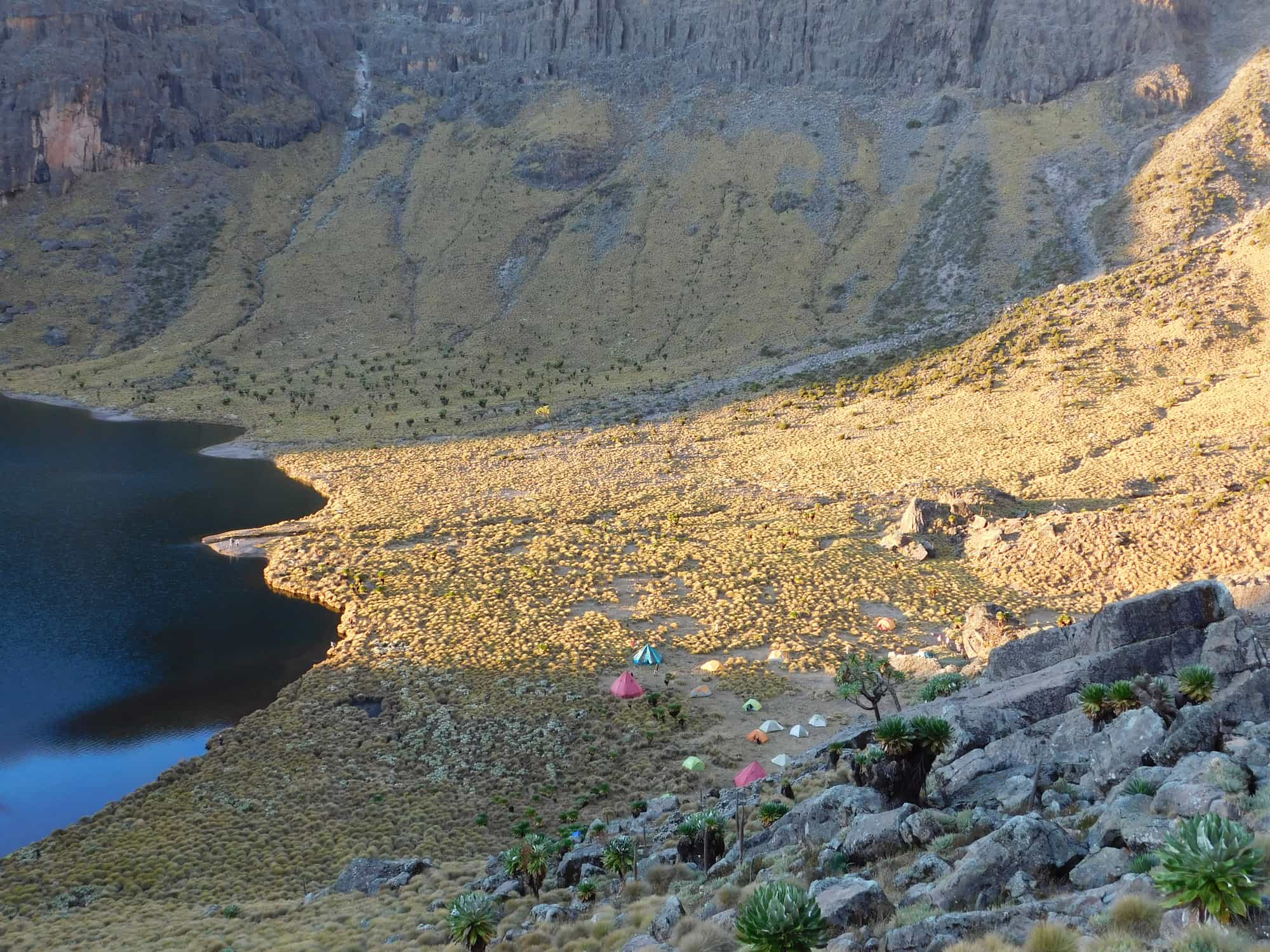
Hiking
Today will be a much gentler day, allowing you to acclimatise and get ready for the long push to the summit tomorrow. Leaving camp, you will continue along the Chogoria Route to reach Mintos Camp at 4200m. Mintos is set on a ridge with incredible views, and you have chance to soak up this camp spot during the late afternoon, preserving energy for your summit day tomorrow. Dinner and a very early night is the name of the game, as you are going to be up very early tomorrow morning.
Day 6
Summit Mount Kenya at Point Lenana (4985m)
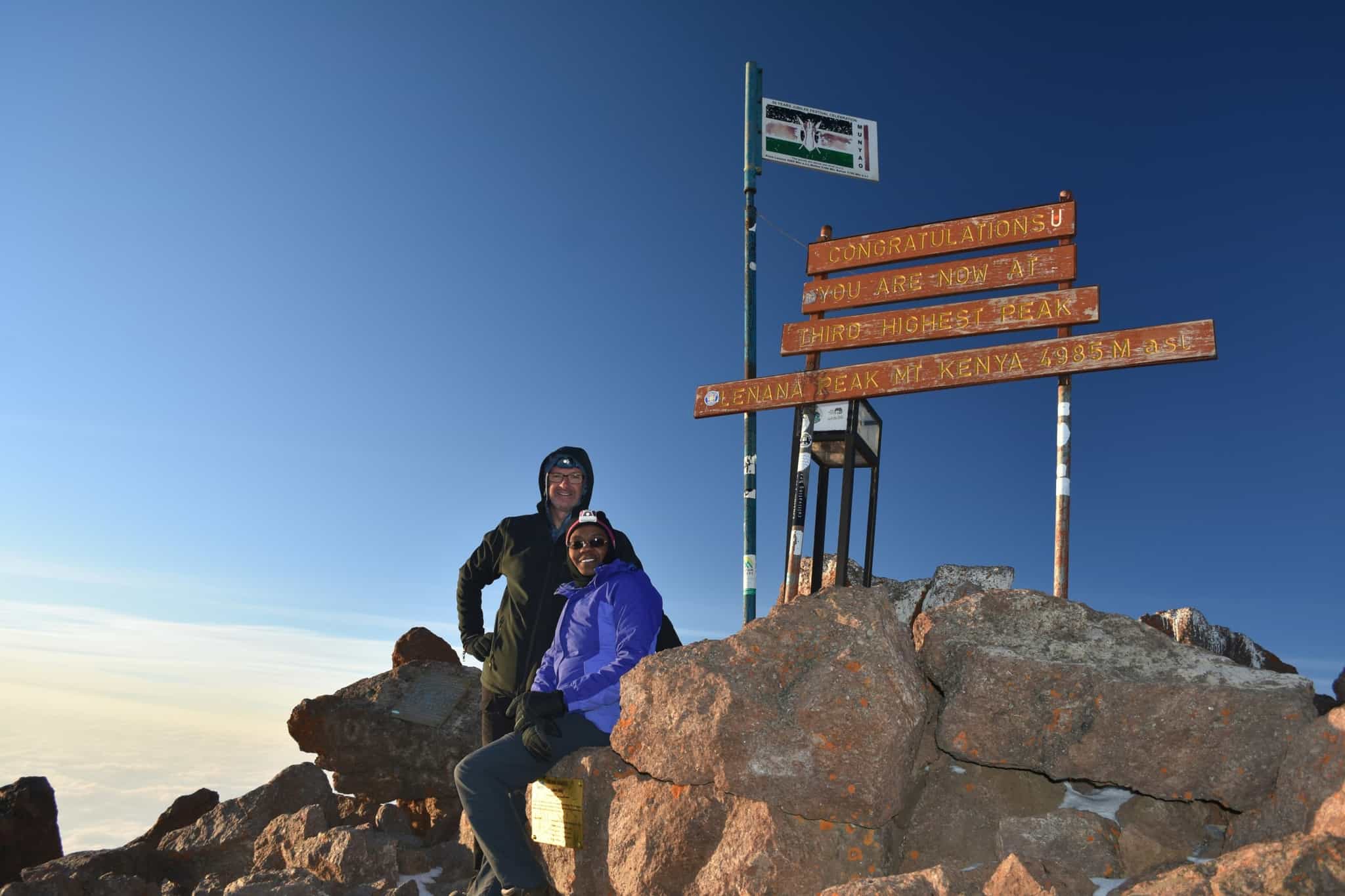
Hiking
Driving
Very early means 02:15 am! Grab a coffee then set off on the trail in the darkness, with head torches lighting the way. The feeling of setting off to summit in the middle of the night with your fellow trekkers is an amazing experience. Eat into the final sections of the trail as you ascend to Point Lenana (the trekker's peak of Mount Kenya) via the Simba Col, reaching the summit by sunrise. If conditions and cloud coverage are favourable, you'll be rewarded with an amazing sunrise panorama while you stand on the roof of Kenya – on a clear day, you can even see across to Mount Kilimanjaro, which is 200 miles away. Descend back to Simba Col, before turning on to an alternative trail and down a steep, scree slope to Shipton's Camp. You should arrive by 10:00, so a well-earned late breakfast and rest await you here, before you tackle the walk down the mountain to Judmier Camp. Say goodbye to your porters and trekking guide here after an epic few days together, load up the Land Cruisers and settle in for the drive towards Ol Pejeta Conservancy. You'll be staying in a beautiful lodge this evening, enjoying some creature comforts and hot showers following your time on the mountain. Fall into bed exhausted and elated from a huge day of mountain trekking.
Day 7
Safari time and wild camping in the bush
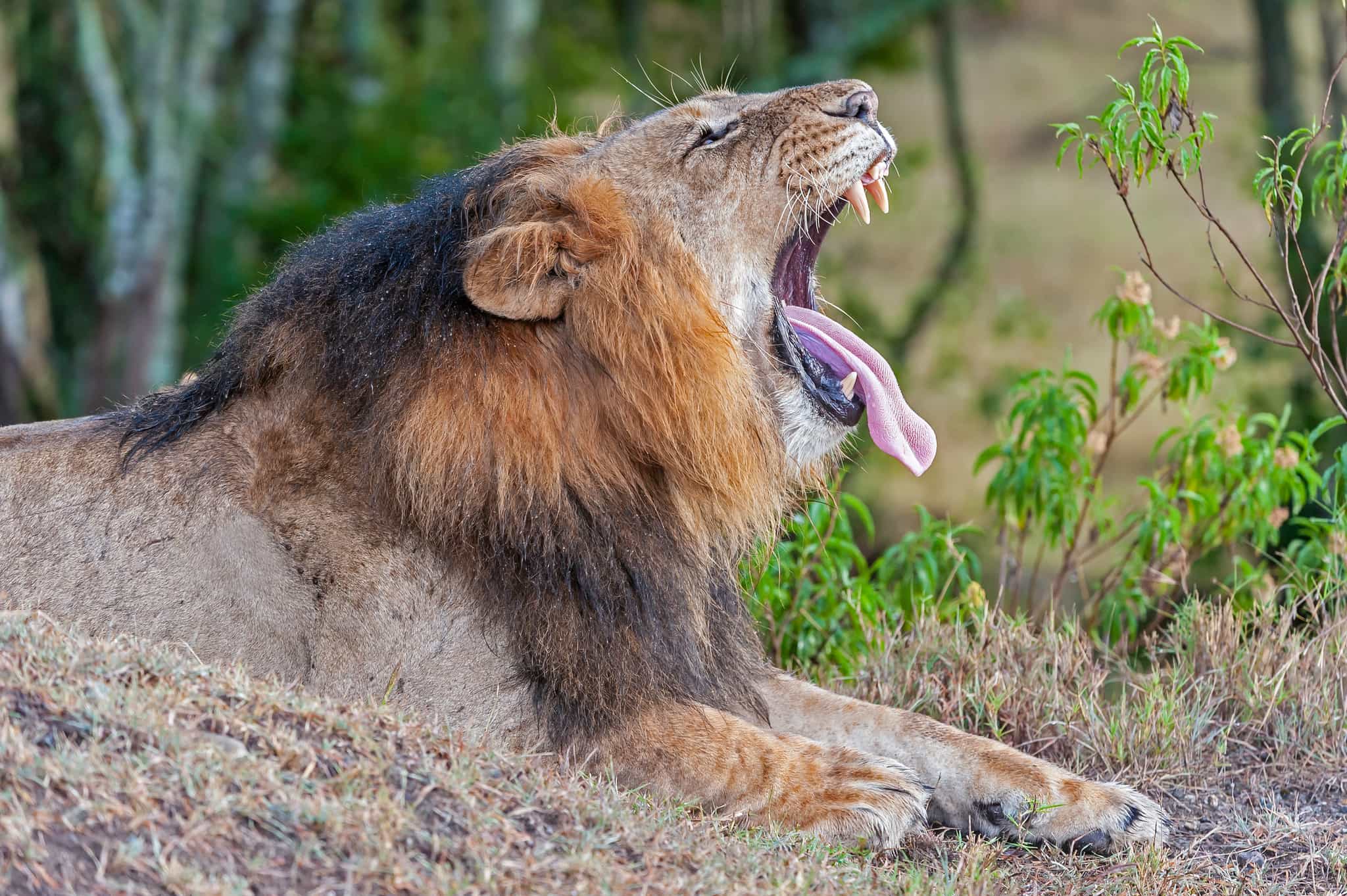
Wildlife Tracking
It's safari time! Wake up feeling refreshed and head out into Ol Pejeta Conservancy in a 4x4 Land Cruiser with a specialist wildlife guide, searching for the quintessential animals of Kenya. Ol Pejeta is one of the best places for a safari in Kenya, with incredibly high chances of seeing the 'Big Five'. Of the many highlights today, spotting herds of elephants, endangered black rhinos and chimpanzees are right up there. You'll spend a full day exploring, before spending a memorable night in a wilderness bush camp set in the middle of the reserve. Watch a quintessential African sunset and experience the bush at night time as you bed down in tents, listening to the sounds of Africa right outside.
Day 8
More safari time and back to the river
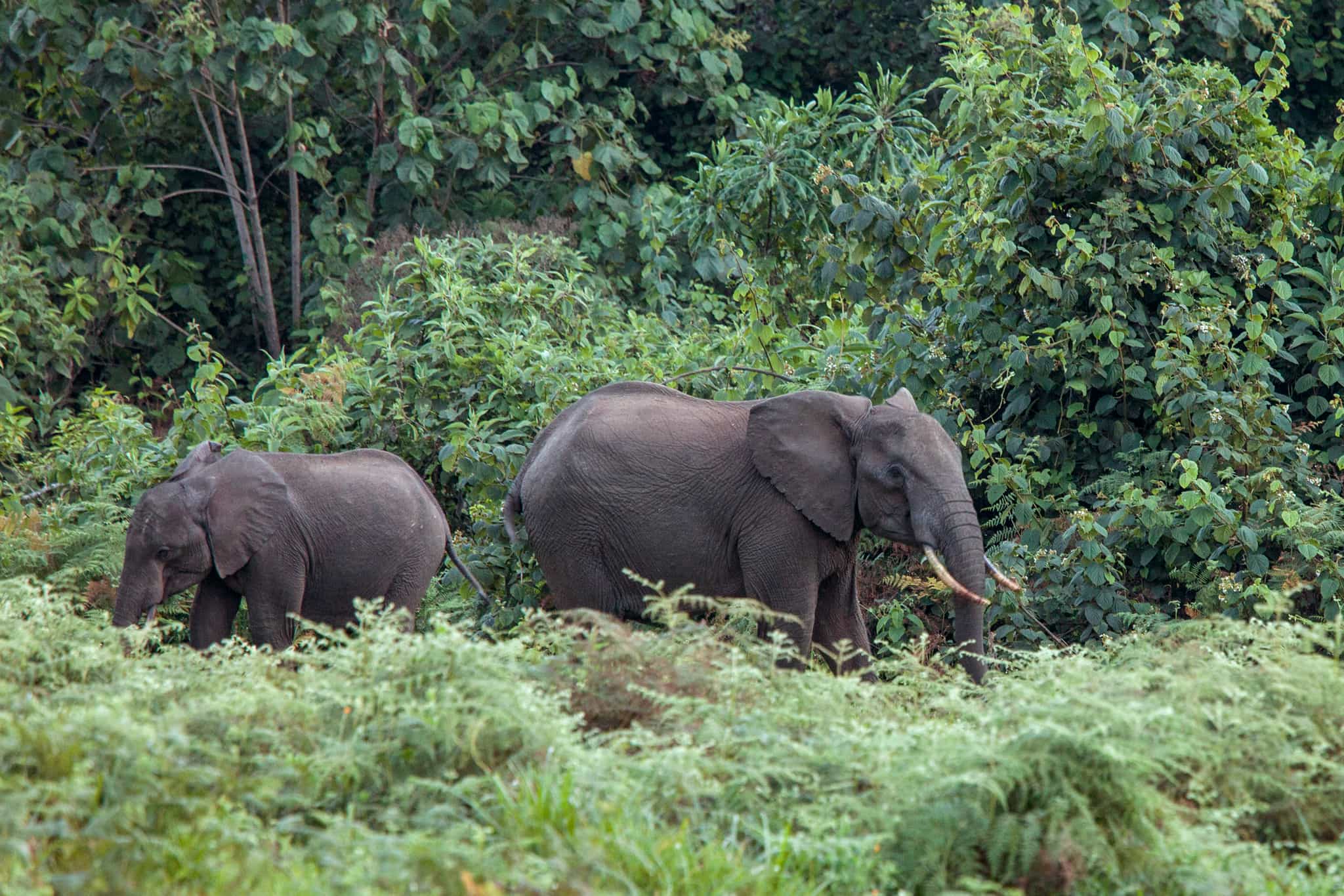
Wildlife Tracking
Waking up in the middle of the African wilderness is an incredible experience. Roll out of the tent and take in the wild surroundings with a coffee at camp before heading out early doors for more safari time in this incredible conservancy. Hop back in the van to head to your final night for the trip back on the banks of the Sagana River. Owned by your host, this is a beautiful and hidden spot in Kenya and makes for a cracking final afternoon of your adventure. After such a busy week, there is no organised activity this afternoon, allowing you to settle into your cottage accommodation and soak up the tranquil vibe here before dinner. However, if you are still seeking some more action, the camp is well known as an adventure paradise, offering a wide range of activities including zip lining, bungee jumping, rock climbing, hiking and mountain biking which are easily organised with your guide.
Day 9
Farewell, Kenya
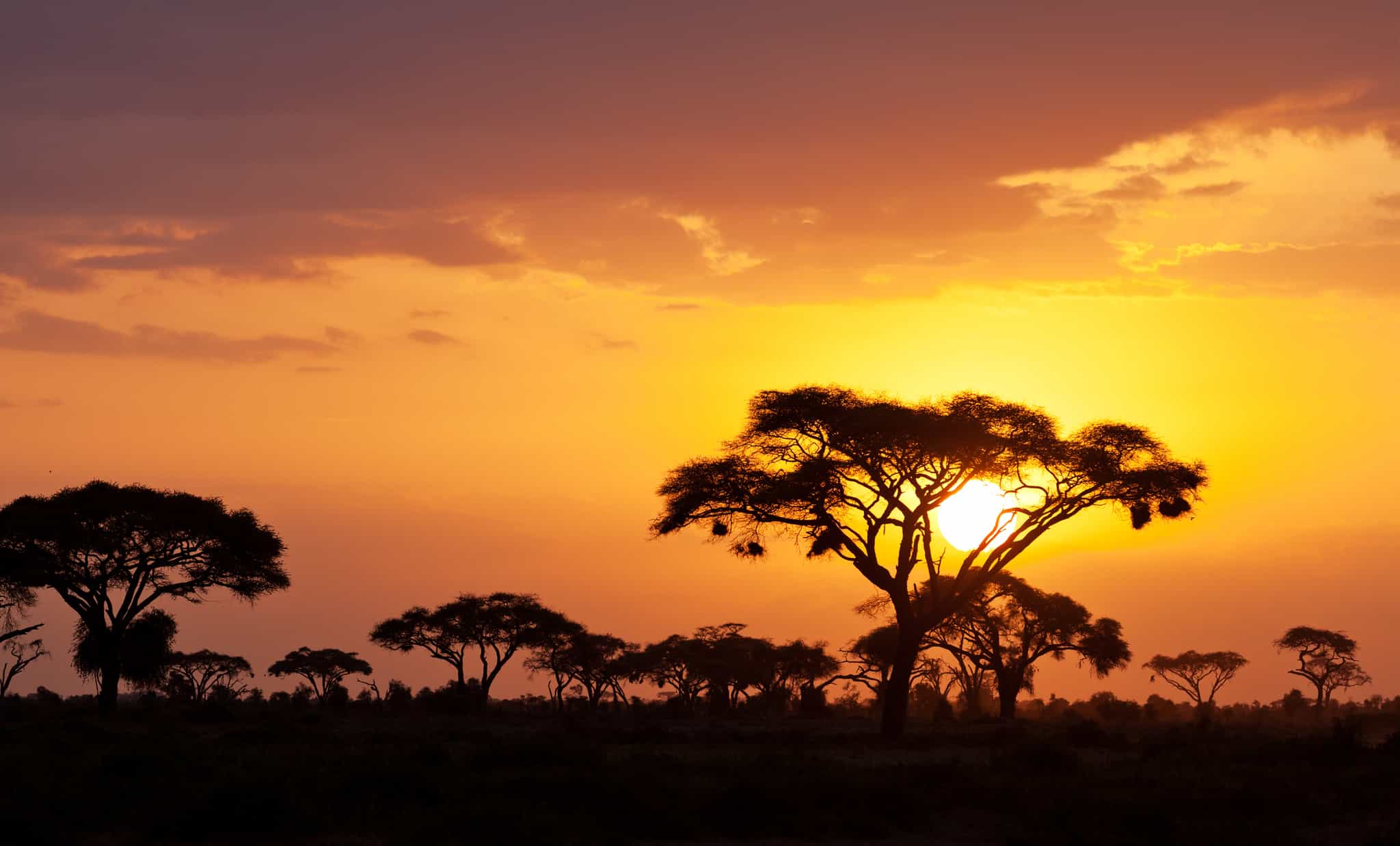
Your adventure comes to an end as you bid farewell and hit the road back to Nairobi. Your host will drop you off at the airport in time for your onward flight.
The Area
Logistics
Starts
Jomo Kenyatta International Airport, Nairobi (NBO)
06:30 on Day 1
Ends
Jomo Kenyatta International Airport, Nairobi (NBO)
Either 06:30 or 19:30 on Day 9
Transfers
Your adventure begins at Jomo Kenyatta International Airport (NBO) where your guide will be waiting for you in the arrivals area. There is one group transfer from the airport usually scheduled at around 06:30 to meet the early morning flight arrivals. If you arrive in Nairobi the day or night before, your host can also arrange a pick-up from the city centre (we recommend staying in the Westlands/Parklands area) instead of from the airport at around 09:00 on Day 1 – the exact location will be confirmed prior to your departure, based on where everyone is staying. You will then be transferred to your host’s base on the Sagana River.
At the end of your adventure, your host will arrange two group transfers back to the airport – one which will arrive at Jomo Kenyatta International Airport (NBO) around 06:30 to catch one of the early morning flights (this means leaving the camp on the Sagana River at around 04:00!), and one in the late afternoon arriving at the airport around 19:30 to catch one of the overnight flights.
Alternatively, private transfers for flights departing at different times can be arranged – see Optional Extras for the costs.
Travel options
There are frequent flights to Nairobi (NBO) from major airports across the UK, Europe and US.
Day 1
Breakfast
Lunch
Dinner
Day 2 – Day 5
Breakfast
Lunch
Dinner
Day 6
Breakfast
Lunch
Dinner
Day 7
Breakfast
Lunch
Dinner
Day 8
Breakfast
Lunch
Dinner
Day 9
Breakfast
Lunch
Dinner
What is the food like?
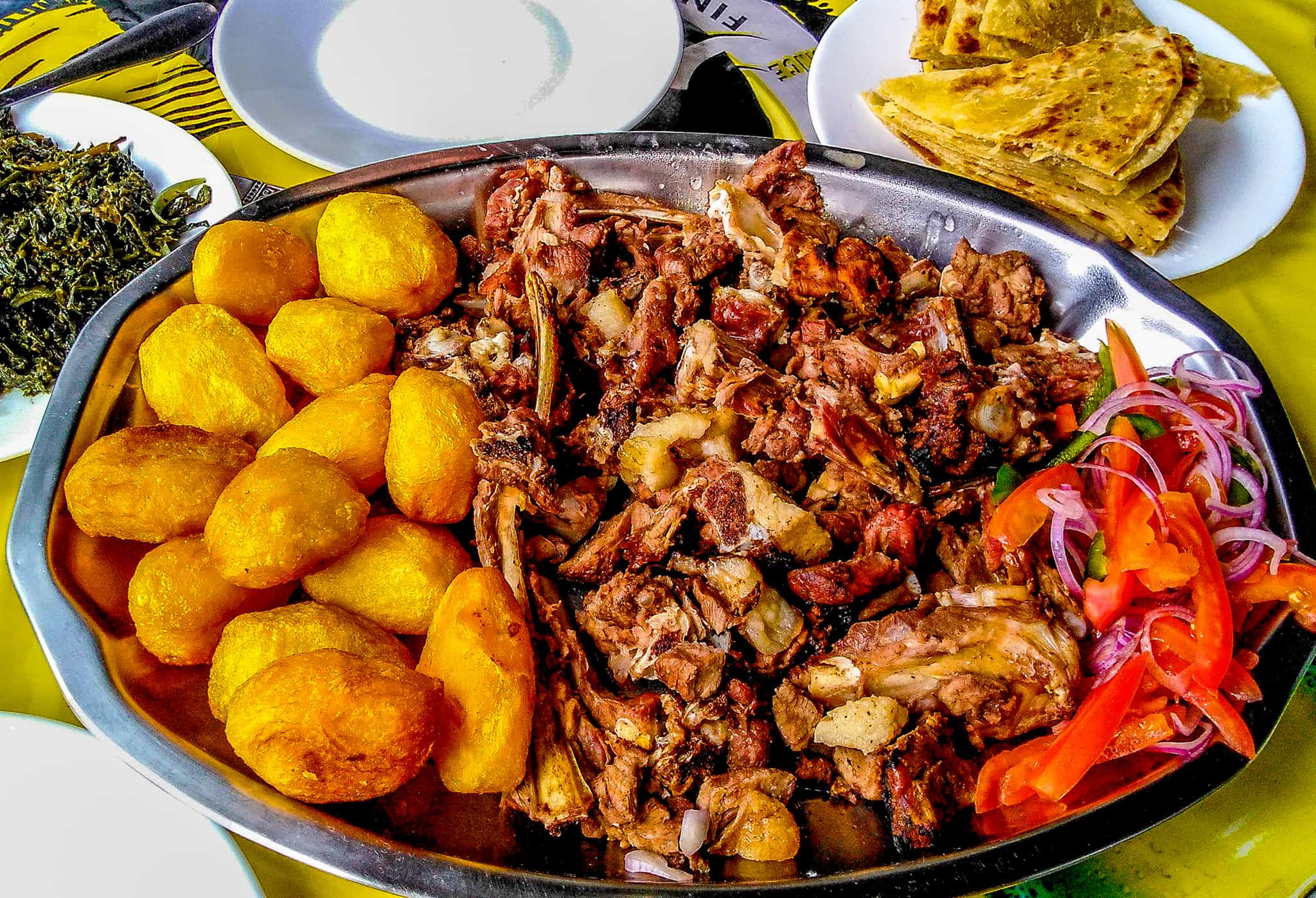
Throughout your trek, a team of experienced chefs will cook and serve you nutritious meals. Breakfast will usually be a combination of fruit, cereal, porridge, eggs, bread, French toast, pancakes, sausage, bacon, tea, coffee and hot chocolate. Lunch will be a mix of vegetables, fruit, boiled eggs, meat cutlets, various sandwiches (e.g. egg, cheese, tomato, tuna, meat, peanut butter), macaroni with meat sauce and bread. Dinner, meanwhile, will usually consist of soup, bread, salads, rice, pasta, potatoes, roast or fried chicken, beef or fish, curry, mixed vegetables, lentils, fruit salad and fruit with custard.
Vegetarians, vegans and other dietary requirements and allergies can be catered for – please just request this on your passenger info form.
What is the accommodation like?
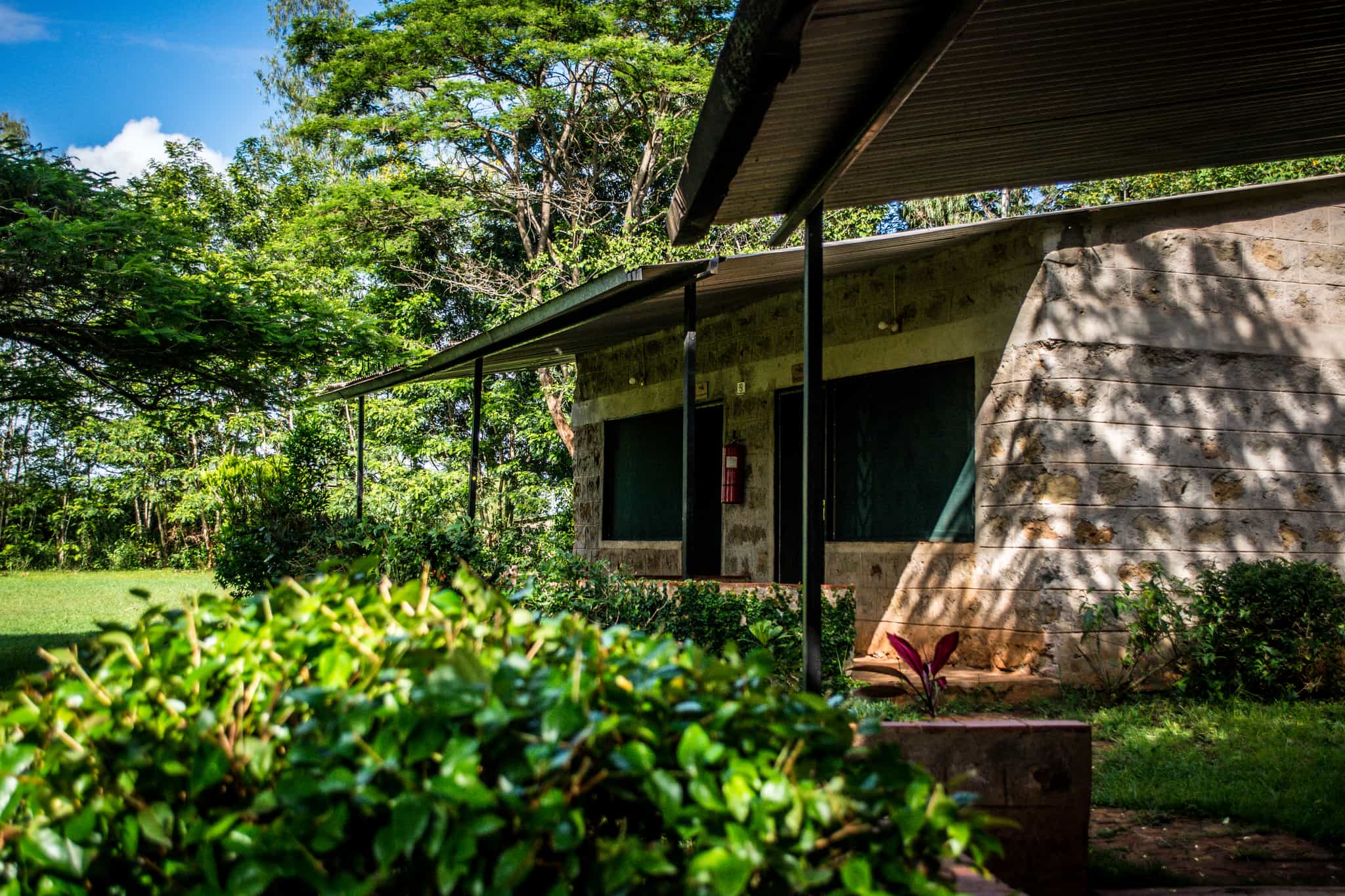
Sagana River Camp
Your host created a camp on the banks of the Sagana River over 30 years ago, which has grown and grown into a peaceful and beautiful adventure camp. On the first and last nights of your trip, you'll stay in one of the quaint cottages with private bathrooms. The camp has two swimming pools, a bar and a huge area for exploring. The camp is best known as an adventure paradise, offering a wide range of activities including zip lining, bungee jumping, rock climbing, hiking and mountain biking. You'll have an afternoon and evening of downtime here if you want to try any extra activities, or you can simply relax by the river.
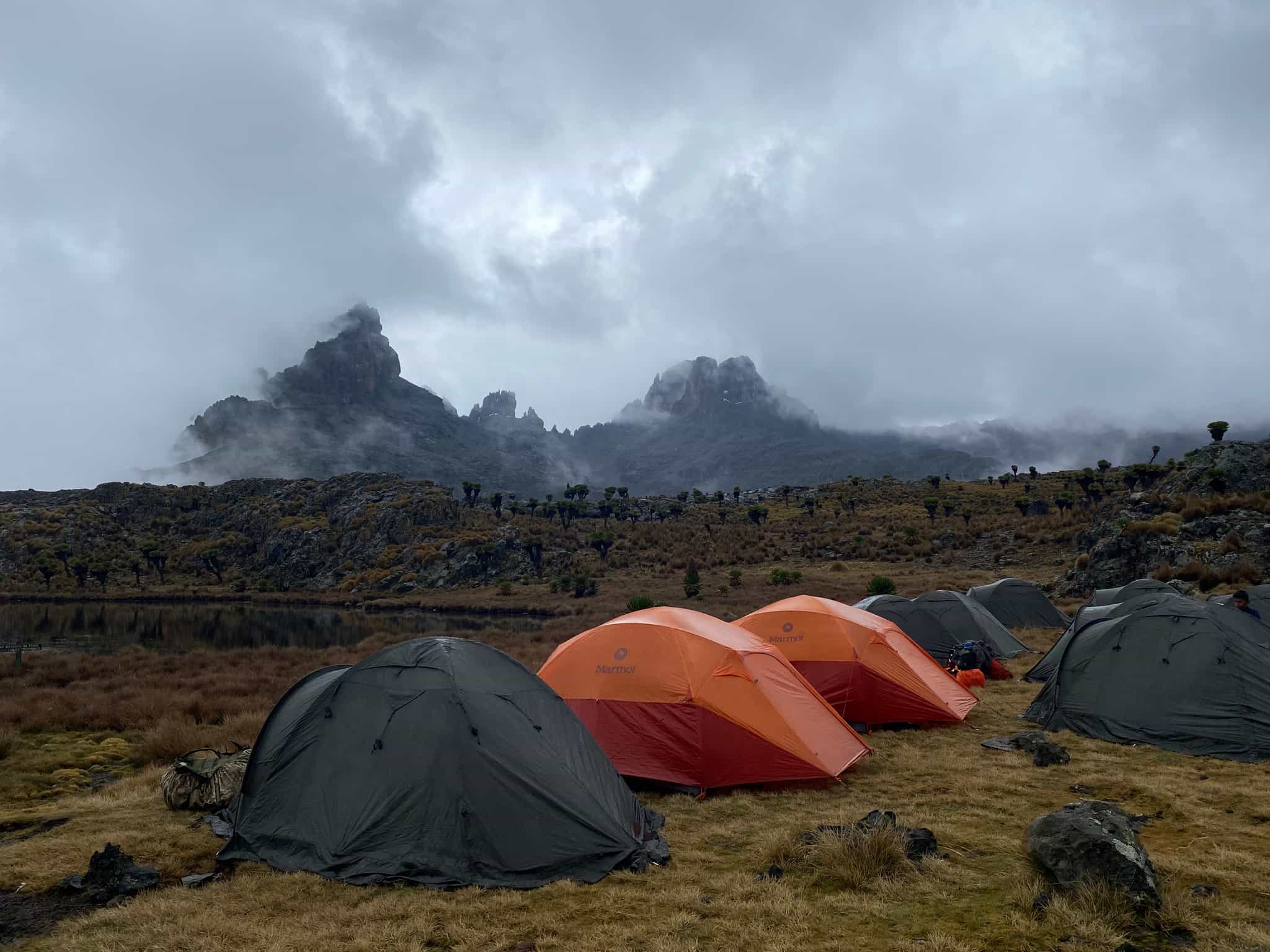
Camping on Mount Kenya
During the trek on Mount Kenya, you will camp at a number of sites along the route, namely Chogoria Gate, Lake Ellis, Lake Michaelson and Mintos Camp. You'll stay in premium twin-share expedition tents with sleeping mats, sleeping bag and a fleece liner provided. There are now several toilet blocks in camps along the Chogoria Route. Where these are not available, your team of porters will provide a portable ‘short drop’ toilet tent with toilet paper and a washing station outside.
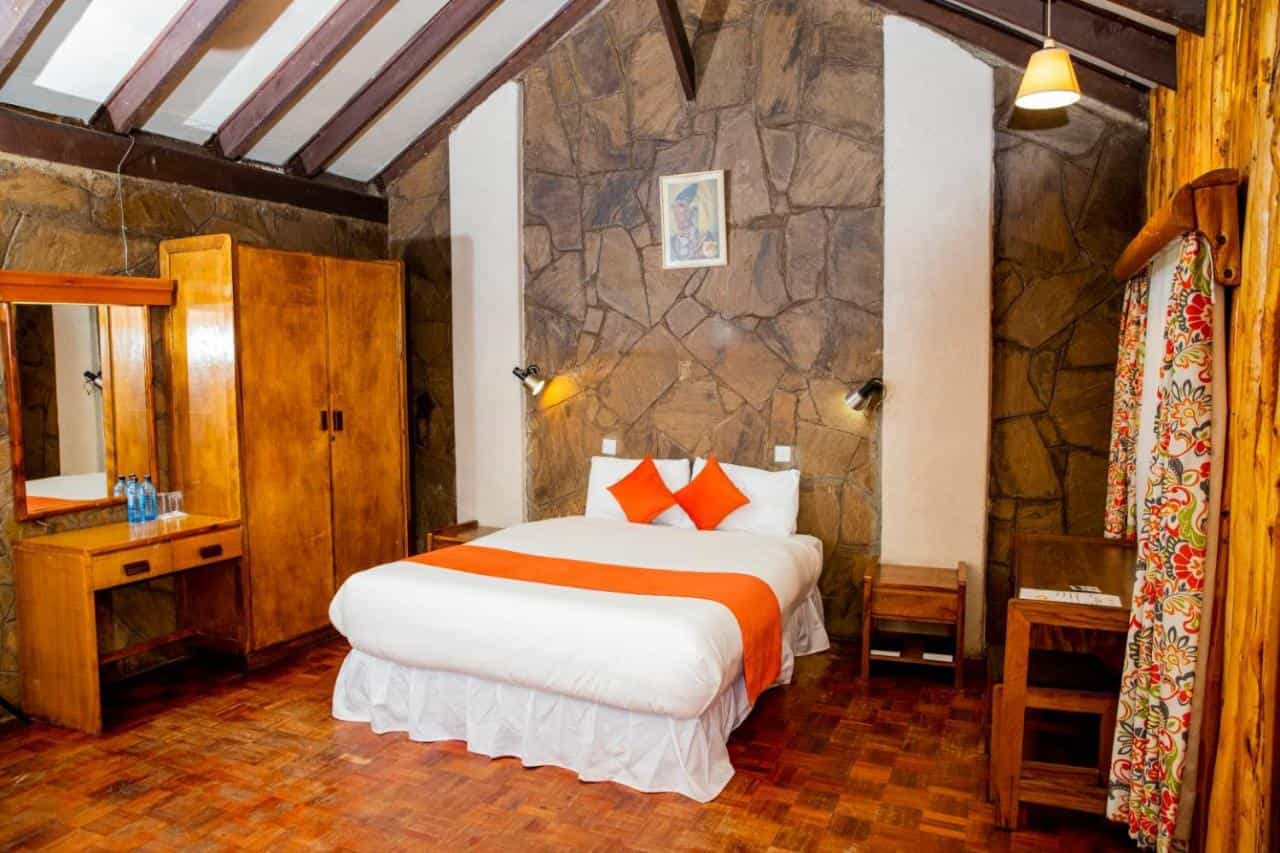
Naro Moru River Lodge
Set on the banks of the Naro Moru River at the foot of Mount Kenya, this 3-star hotel is nestled amongst big trees and beautiful gardens. It's a peaceful and relaxing location about a 30-minute drive from Ol Pejeta, where you'll be heading the next morning for a full day on safari. You'll stay in twin-share rooms with en suite bathrooms.
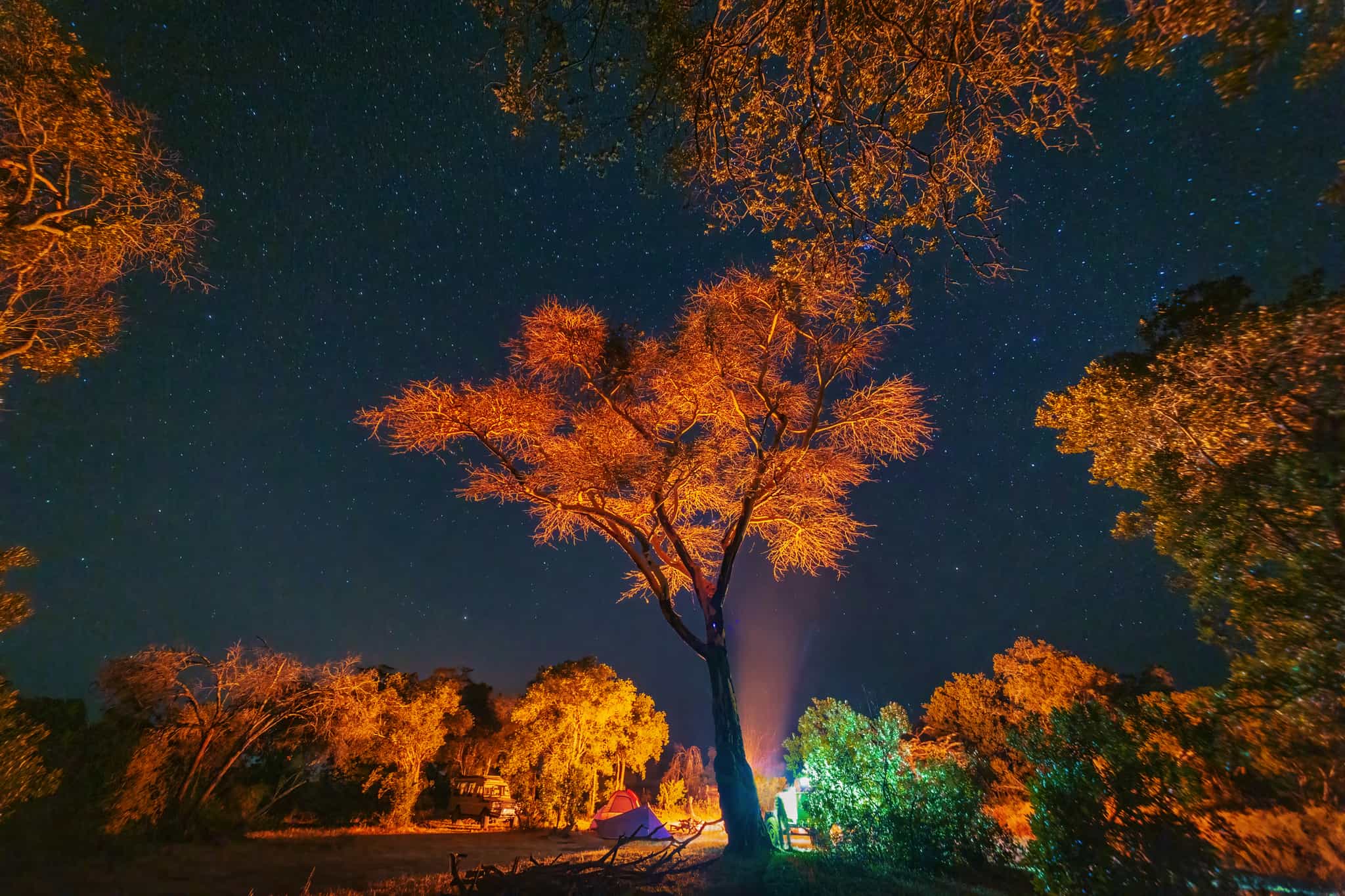
Wild camping in Ol Pejeta Conservancy
A magical night out in the African bush awaits you after a day spent on safari in this magical conservancy. You'll sleep out at a mobile safari camp in the middle of the bush, surrounded by wildest Africa. Your host will set up camp with a mess tent and kitchen, and twin-share tents (with beds and bedding provided). There are also bucket-showers and long-drop toilet facilities. For security, an electric fence is erected around the perimeter of camp.
Upgrades
For solo travellers looking for their own space, an optional private room and tent can be booked for an extra charge, see Optional Extras for the price. Please request this at the time of booking (this is subject to availability).
This trip has been rated as Challenging
You'll be trekking to reach the summit at Lenana Point. This is commonly known as the 'trekker's summit' of Mount Kenya, and is the third highest point of the massif. This isn’t a technical summit and anyone with good fitness levels and some experience of challenging hikes or treks should be capable of summiting. The route we have chosen for this trip is the Chogoria Route – widely considered the most beautiful way to reach Point Lenana, it is also one of the most challenging routes. The summit push and subsequent descent on Day 5 of this trip is a real beast of a day of over 9 hours.
Given the nature of the trip it is necessary to have some previous hiking experience under your belt. We would recommend working on your hill fitness over several weeks or months before attempting this climb. This would involve developing a reasonable base of cardio and strength fitness combined with some specific hiking preparation in the hills. Think of a few weekends of back-to-back walking days with as much up and down as you can fit in, if you want to make it harder carry a heavy backpack! This preparation will set you up to get the most out of your trek and enjoy yourself on your adventure!
It is also important to note that trekking at altitudes above 3000m is more demanding on the body than walking at low elevations, and this will be the main challenge. Your guide will set the pace and as with all altitude treks, the theme is ‘pole pole’ (slowly, slowly in Swahili) to help you adjust to the high altitude. Your guides are trained to identify the symptoms of altitude sickness so if any more serious symptoms are noted, there is a strict procedure regarding extra care or a rapid descent if needed. Your host and the guides they employ work regularly with the British Army and International Schools of Kenya, due to this they have extensive safety practices in place, and all guides hold international qualifications which are kept up to date.
What if i need to skip an activity?
There is a support team throughout the trek who are there to assist the group to complete the trek. If you are unable to continue at any stage, they will asses the situation and arrange an evacuation. As you are wild camping in the Ol Pejeta Conservancy it is not viable to skip any of the safaris, but frankly why would you!
What will I need to carry?
You'll have a team of porters transporting your main backpack for the duration of the trek. You will need to trek each day with a smaller daypack, we recommend a minimum of 30 litres to be able to carry enough water, snacks, layers and waterproofs, plus any additional personal items for each day of trekking.
Please note that there is a limit to the weight that the porters can carry. Your main rucksack must be no heavier than 20kg.
It's possible to climb Mount Kenya all year round; however, the months outside of the rainy seasons are more desirable. The best climbing months are from December to March and July to October. The best weather is usually at the beginning of the year from January to March, which are also typically the warmest and driest months.
Thanks to Kenya’s proximity to the equator, the region doesn’t typically experience the extremes of winter and summer weather you might expect and instead has dry and wet seasons. The local weather conditions on Mount Kenya can be somewhat unpredictable (to say the least) and rainfall varies from 2100mm per year in the rainforest belt, to less than 120mm per year in the summit zone. Temperatures vary considerably with height and with time of day. On the plains surrounding Mount Kenya, the average daytime temperature is about 25°C. At 3000m frosts can be encountered at night, while temperatures in the day range from 5 to 15°C. Nighttime temperatures on the summit are well below freezing. The south-facing side of Mount Kenya receives more sunshine in the December to March period.
Exceptional Guide, Organizational Challenges
I recently went on a climbing trip to Mount Kenya, and I wanted to share my experience, starting from the pickup. Unfortunately, the process was quite frustrating. It took hours to collect the team because the host did not confirm the pickup addresses ahead of time. We spent our first day jumping from site to site in a disorganized manner. The itinerary that was shared with us was different from what was advertised on the website, which caused considerable confusion and frustration. (we lost the first day between road and discussion! ) I want to take a moment to commend our guide, John. He truly stepped up and did his best to address the issues caused by the unorganized host. my disappointment regarding the single occupancy charge I paid during my the trip While I understand the need for different pricing structures, it was frustrating to see that the rest of the group was able to get single occupancy without incurring additional costs.
The food was just "so-so," lacking the variety and quality that I was expecting based on the promotional materials. This was disappointing, especially after long days of climbing when we were looking forward to hearty and nutritious meals.
one more unprofessionalism of the host during the final day of our climbing After an exhausting summit attempt, we expected a smooth transition back, but instead, we encountered significant delays.
The host did not provide the team vehicles as agreed, forcing us to wait under the sun while they organized all the camping equipment into the cars. This was particularly frustrating after two long days , as we were tired and simply wanted to rest.
Additionally, the logistics of taking porters with us and parking at the gate added to the chaos. While we eventually had picnic sandwiches, processed meat, and fruit, the quality of the food felt underwhelming after our strenuous effort.
I would like to take a moment to highlight the exceptional performance of our guide, John, during the climbing trip to Mount Kenya . Throughout the journey, John demonstrated professionalism, support, and outstanding leadership.
Thank you for taking the time to share your detailed feedback about your Mount Kenya trip - it's incredibly helpful as we work to improve, however, we're sorry the experience didn't quite meet your expectations.
Alongside the direct communication you've had with our Customer Experience team, your feedback has been reviewed by our Operations Manager and local host, and we'd like to respond to the points you raised:
Single tents were offered to all guests as a kind gesture due to low group numbers. We understand this was frustrating for someone who had paid the single supplement and will ensure more consistent handling of this in future. Our CX team has offered a refund to reflect this.
On Day 1, a driver error and heavy traffic caused delays despite thorough prior planning. To prevent this in the future, we're moving to a single central pick-up point where the group can meet the guide.
With regards to the itinerary, it has been confirmed there was an internal miscommunication about the first day due to the guide receiving an outdated version of itinerary. Whilst quickly corrected and no activities were missed, we understand this caused confusion. We are confident that this will not be an issue for future groups.
Food is usually well received on the mountain, but we take your comments seriously. The host will work to improve variety and gather dietary preferences earlier. We understand that supplies were accidentally damaged on the final day and the meal provided at the last minute was not of the standard we would expect; incidents like this will be better managed in future.
Finally, we acknowledge the last day was rushed. The group descended earlier than expected, and whilst a driver was scheduled, there were delays in packing up. The local host is reviewing how to streamline this process.
Thanks again for your honest input; we'll learn from it and are committed to improving future departures.
Ruth MBA Operations Team


An Unforgettable Adventure: Nature, Culture, and Warm Hospitality in Kenya
I fell in love with the people, the country, and the food—and as for nature, there are no words to describe it. You just have to come and see it for yourself! I'm already thinking about how I could return to Africa in 2026.
Our guide, John, was brilliant! He is truly an expert in what he does and a great storyteller.
Some practical tips: Bring a hot water bottle for those chilly camping nights on the mountain. There is always plenty of hot water in the camps. Other useful items include really warm gloves and woolen socks for the cold evenings.
As a solo female traveler, I was initially nervous about safety, but after my experience, I would confidently return.
If you have extra time in Kenya, I recommend using Bolt or Uber for taxis. I used Bolt, and it was fast, reliable, and incredibly affordable.
For data, I used 'Ubigi,' which was both reliable and budget-friendly.
Fantastic Tour Expertly Guided
Just got back from this trip. Mount Kenya itself was stunning especially the high altitude parts of the trek. The tents were excellent, the food plentiful and the camps well set up. Our guide John was incredibly knowledgable and led us expertly. After 4 nights in the mountain the change of pace to safari was very welcome and camping in the conservation was a very special experience indeed. Would highly recommend this trip.
Mt Kenya 2024
Had a great time on the mountain and then the safari.Head guide John and porters all very good never had too wait for tents,meals.Only a small group of 3 with a good friendly atmosphere.Camping amongst wildlife in the conservancy was a highlight for us all.I would rate Mt Kenya better than Kilimanjaro with better scenery and much less crowds.
Itinerary Activities
- 5 days of guided trekking on the Chogoria Route to Point Lenana, the 'trekker's summit' of Mount Kenya
- Full day safari in the Ol Pejeta Conservancy
- Morning safari in the Ol Pejeta Conservancy
Guides
- Local, certified trekking guides
- A support team for the duration of the trek
- Local, expert safari guides
Accommodation
- 4 nights camping on Mount Kenya
- 2 nights in cottages at your host's riverside lodge
- 1 night in a lodge in the foothills of Mount Kenya
- 1 night in a mobile wilderness safari camp
Meals
All your meals are provided for the duration of the trip. This includes:
- 8 breakfasts
- 7 lunches
- 8 dinners
Transfers
- Group arrival transfer from Nairobi Airport on Day 1
- Group departure transfer (choice of two times) to Nairobi Airport on Day 9
- All other transfers throughout the trip
Porterage
- A porter will carry your overnight luggage on the trek
Permits
- All permits, taxes and licenses
Equipment
- All your camping gear during the trek
Our trips are hassle-free by design. We include all the activities and equipment, as well as many of the meals, so you can simply rock up with your rucksack and share the adventure with your new pals.
Travel to and from the trip
Our trips do not include flights, trains or other travel to the start point and back from the end point.
Tips
Tips are not included in the trip cost. There is no expectation or obligation to tip your host and main guide for the trip as a whole; however, any tips are gratefully received, should you wish to offer them at the end of the trip. You can do this in $/£/€.
However, tips for the team of porters on Mount Kenya are expected as a cultural norm. Even if it may not be customary to you, it is of considerable significance to the people who will take care of you during on the mountain. The minimum expected contribution is $100/£80/€90 per person for the full five days on Mount Kenya. Please do budget for this, and make sure you have cash readily available at the end of your trek on Day 6.
Travel insurance
Travel insurance is compulsory for all of our adventures and you are required to provide your policy information before departing. Your insurance should include adequate protection for overseas medical treatment, evacuation/repatriation, your baggage and equipment and the specific activities involved on your adventure. We also strongly recommend it includes cancellation and curtailment insurance, should you be unable to join your trip for specific reasons such as illness. Our recommended travel insurance provider is Campbell Irvine, as their insurance offers all of the above.
Visas
Visa requirements often change, and you are responsible for obtaining any required visas for this trip. Please check with your nearest embassy or consulate for up-to-date advice.
Personal Expenses
You know your own spending habits best, so please budget an appropriate amount for things like optional meals and drinks, shopping, optional activities, and laundry.
What's included?
- Twin-share expedition tents and sleeping mats
- Dining tents with a solar light
- All cooking equipment
What do I need to bring?
BAGS
Soft duffel bag or backpack (your main pack will be transported for you during the trek)
Trekking backpack (30+ litres)
CLOTHES
Waterproof jacket
Lightweight down jacket
Waterproof trousers
Breathable wicking layers
Thermals (top and bottom, merino ideal)
Fleece or warm mid-layer
Lightweight trousers/shorts/skirts
T-shirts
Underwear and socks
Sunglasses (essential for summit day)
Sunhat
Winter hat
Gloves
Something to sleep in
Waterproof hiking boots (worn-in)
OTHER
Sleeping bag – 4-season (a limited number of these can also be provided by the local host, if requested in advance via your booking)
Sleeping bag liner, for added warmth (optional)
Travel pillow
Universal travel plug adapter
Power bank or solar charger
Passports (and visas)
Travel insurance documents
Earplugs
Insect repellent
Suncream
Personal first-aid kit (inc. blister treatment)
Quick-dry towel
Alcohol hand-gel
Headtorch or torch
Reusable water bottle (x2 litres)
Biodegradable wet-wipes
Energy bars and snacks
Trekking poles (highly recommended)
Double/twin room at Sagana River Camp
Payable Before Departure
Double/twin room at Sagana River Camp
… Per night
Single room at Sagana River Camp
Payable Before Departure
Single room at Sagana River Camp
… Per night
Optional Private Room & Tent Upgrade
Payable Before Departure
Optional Private Room & Tent Upgrade
…
Nairobi Airport to Sagana River Camp (each way)
Payable Before Departure
Nairobi Airport to Sagana River Camp (each way)
…
We partner with the World Land Trust to ensure this trip achieves Net-Zero emissions. We also support their Buy an Acre programme, helping local communities to buy and protect natural habitats in perpetuity.
What's the number?
It works out on average at 217kg of CO2 emissions per person, including all local transport, accommodation, food, activities, guides, staff and office operations.
The only thing it doesn’t include right now is flights and travel to the destination. We do make an overall estimate across all our customers separately, but as we don’t book flights, have customers from all corners of the world, and no way of reliably knowing their travel plans, we simply can’t include an individual number in the figure on display here. We’ve got a goal to fix that, so that when you book, there is a way to measure and mitigate the carbon emitted by your flight too.
But what does the number mean?
Yep, hard to picture eh? To give you an idea:
- Driving 1000 miles/1609km would be approximately 281kg of CO2 in an average car (or 140.5kg per person, if there were two of you in it).
- A return economy class flight between London and New York would be approximately 1619kg (1.66 tonnes) per person.
- 10 trees in a temperate forest are estimated to remove approximately 250kg of CO2 from the air in a period of 5-10 years.
What are we doing about it?
Our trips are relatively low-carbon by design, and we're working with all our hosts to develop long term carbon reduction plans. We partner with the World Land Trust to ensure this trip achieves Net-Zero emissions. We also support their Buy an Acre programme, helping local communities to buy and protect natural habitats in perpetuity, ensuring the protection of the reserve and its wildlife.
Want to know more?
Amazingly, no international travel company has ever publicly published their carbon measurements before, as far as we know. We believe that must change, quickly. So we’re openly sharing the method we used in the hope that other companies will be able to more easily follow suit and build on what we've done so far. You'll find it all here.
The guides have been extensively trained on the routes, terrain and conditions you'll be crossing. With over 10 years of experience, they have also been to the summit more than 100 times. Additionally, all of the guides are certified First Aid Responders and CPR trained.
When applying for your Kenyan visa, you may be asked for the address of your accommodation. If required, please use the following address:
Savage Wilderness Camp, Riandira, Sagana, Kenya
If you require a letter of recommendation or participation as part of this application, please contact our customer experience team.
The mountain has three main summits: Batian (5199m), Nelion (5188m), and Point Lenana (4985m). Point Lenana is known as the 'trekkers summit' as is the only peak that is accessible without previous mountaineering experience. Both Bastian and Nelion summits involve multi-pitch trad rock climbing and are highly technical.
Our trip follows the Chogoria Route which approaches the mountain from the east. This is considered to be the quietest, yet most beautiful route to the top. It passes by Lake Ellis and Lake Michaelson, two picturesque glacial lakes which sit at over 3000m.
Yes, your host has long been campaigning for more responsible policies towards the employment of local people, including porters, and sharing the benefits of tourism more fairly with local communities. Your host ensures porters receive fair pay and ethical treatment.
You can securely leave any excess luggage at your host's base before setting off on the trek.
No plastic bottles are allowed on Mount Kenya. Your guides will supply you with purified drinking water, either by boiling, filtration, or use of purification tablets.
This trip reaches elevations above 4500m, where the risks associated with Altitude Sickness (AMS) are higher, and where more serious conditions like HAPE (High Altitude Pulmonary Edema) and HACE (High Altitude Cerebral Edema) can occur.
Previous high-altitude experience doesn’t guarantee the same reaction every time, but it can be a helpful indicator. It gives you insight into how your body might respond, helps you recognise symptoms early, and prepares you mentally and physically for the demands of high-altitude trekking.
Your guide is trained to manage altitude risk by carefully managing the rate of ascent, monitoring group wellbeing, and taking action if anyone becomes unwell.
Before travelling, think about your own physical condition and consult a medical professional if you have concerns – especially if you have underlying health issues. If possible, arriving a day or two early at altitude is a great way to help your body adjust.
Your travel insurance must cover the maximum altitude reached on this trip and include emergency evacuation.
This trip takes place in environments where wild animals are present in their natural environment, where protections and controls on their movement may be limited or non-existent. Some species may be dangerous, venomous, or unpredictable. Sightings are a privilege – but safety is key. Always follow your guide’s instructions and any posted signage.
We recommend considering your comfort around wildlife and discussing any concerns with your host before travel, particularly if you have allergies, phobias, or related health conditions.
This trip includes locations where temperatures can range from extremely hot to extremely cold during different parts of the itinerary. In some areas, you may face high daytime temperatures, strong sun, and humidity with limited shade. Elsewhere – especially at higher elevations – temperatures may drop below freezing, particularly at night.
These extremes can affect your physical performance and increase the risk of heat-related issues such as dehydration or heat stroke, or cold-related risks like frostbite and hypothermia. Your guide will manage the pace, monitor group wellbeing, and adjust the plan when needed to keep everyone safe.
We recommend considering how you personally respond to heat and cold, and speaking with a healthcare professional if you have any conditions that could be affected. Packing the right gear for both climates is essential, and arriving early may help your body acclimatise more comfortably – especially if you're coming from a more moderate climate.
Sure can! Over 70% of our travellers travel solo, it’s a great way to meet like-minded people.
Our team of Adventure Hunters co-create exclusive adventures which are run by highly vetted, specialist hosts. The trip is run by our trusted host partner in the destination. We only work with independent, local, in-destination experts who know the very best places to explore and how to stay safe. Read more information about the local teams we partner with. You’ll be introduced to the host straight after making a booking via the Much Better Adventures platform.
Much Better Adventures refer to the UK Government’s official travel advice when designing trips and monitoring trip operations. We recommend that all customers are familiar with the practical information provided on the Government’s FCDO website, where current travel advice can be found by searching for the applicable destination(s).
For customers joining this trip from other international destinations – please also read the official travel advice applicable to your country of residence/origin, as this may differ.
We recommend checking out the country-specific information and also talking to a travel nurse.
We automatically convert prices from the local currency that a host receives to your chosen currency. We update our exchange rates on a daily basis so this does mean that prices displayed on the site are subject to currency fluctuations, which is why you may see them change over time.
If you wish to change the currency you pay in, head to the bottom of the page.
All of our group adventures are specially designed for adults to enjoy as we want these adventures to bring together outdoorsy people who are truly like-minded. You must be over 18 to join one of our trips.
You're always in good company on one of our adventures.
Our trips are typically made up of a mixture of solo travellers and small groups of 2 or 3 friends, with most in their 30s-50s.
Our sociable adventures are solo-friendly by design and naturally attract outdoorsy people with a shared mindset; a love for adventure, a desire to push themselves and meet awesome, like-minded people along the way.
It’s this camaraderie that has so often turned a great adventure into a life-changing one.
Don't just take our word for it:
- 95% of people rate the group dynamics on our trips 5/5
- 90% of people recommend joining a trip to make new friends
- 75% of people have met people on our trips that they would now consider friends
See here for more info about the Much Better Adventures tribe.
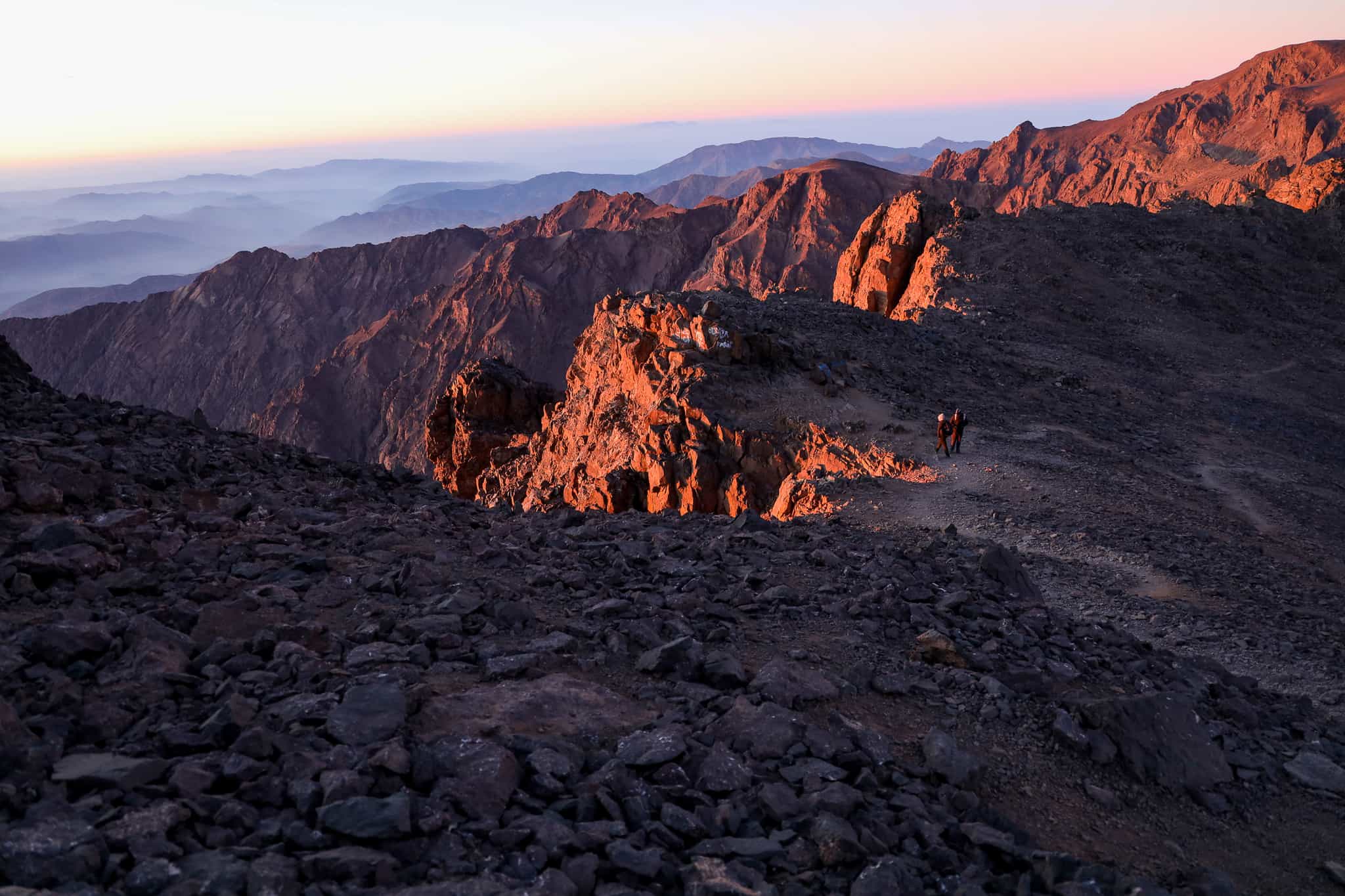
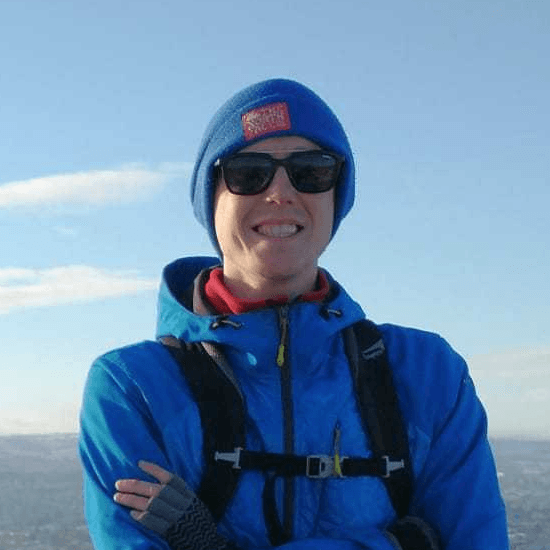
Need help finding flights?
From logistics and how to get there, to fitness, group dynamic and trip difficulty, Rory and his team of friendly experts are on hand to help.
We've got your back
Guaranteed to run
All Much Better Adventures trips are now guaranteed to run. Once you’ve booked your spot you can immediately make your travel arrangements, no uncertainty, no hanging about (excludes 'request to book' departures). Full details
Flexible payments
Secure your spot with the minimum deposit and pay off the remaining balance in as many instalments as you like, with no interest or fees. Full details
Happiness Guarantee
We’re so confident you’ll have an amazing time we’ll put our money on it. Full details
Full financial protection
To give you complete peace of mind Much Better Adventures is backed by ABTOT, ABTA and ATOL memberships. Full details
Tried & Trusted
Much Better Adventures is rated ‘Excellent’ on Trustpilot with over 1000 verified trip reviews averaging 4.8/5.
Connect before you go
You'll be invited to join a WhatsApp group to get to know each other before your big adventure together. Full details
DEPARTURE DATES
Saturday 16th August 2025
to Sunday 24th August 2025
